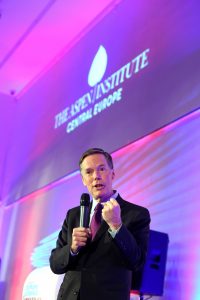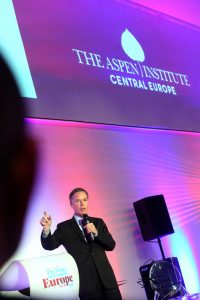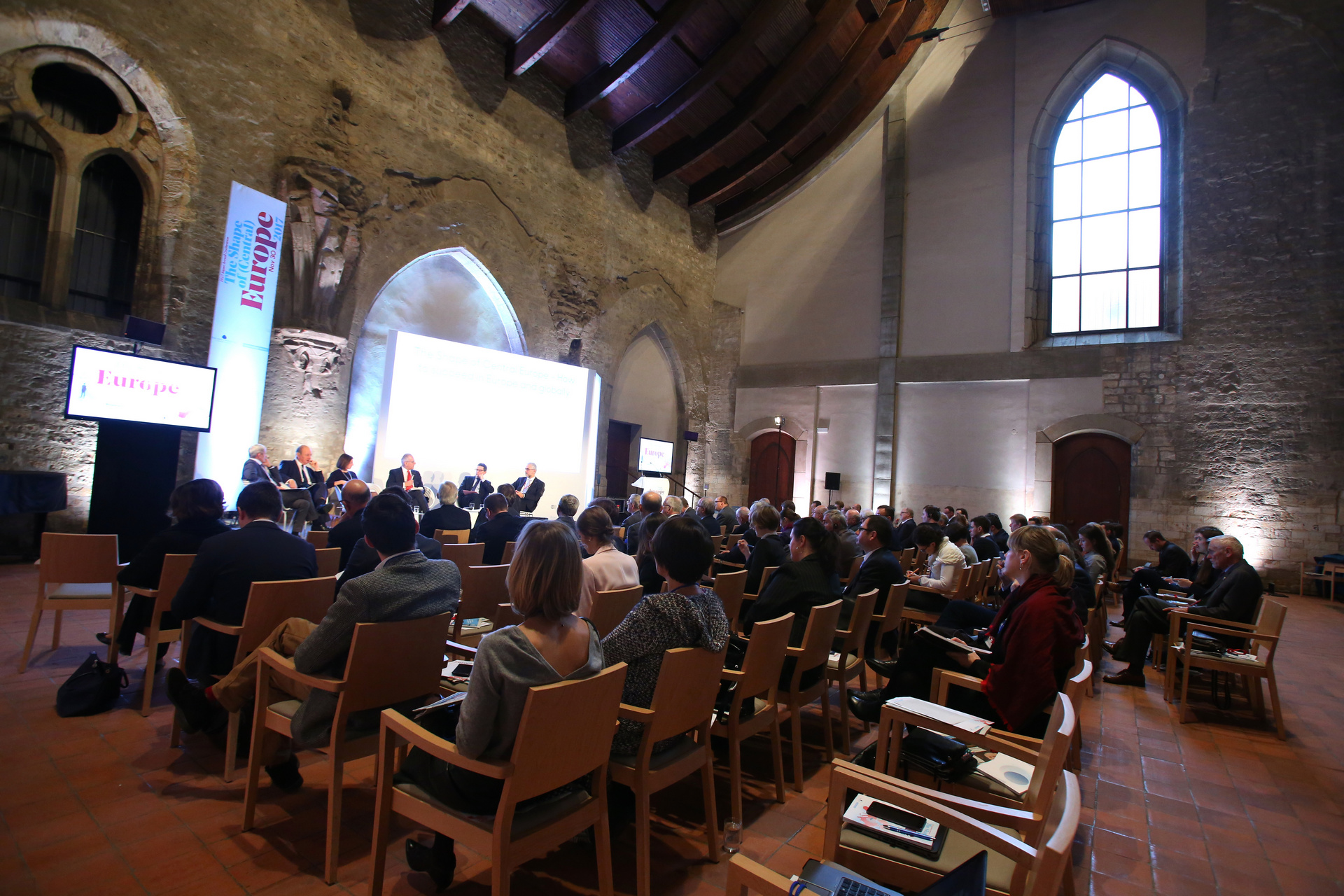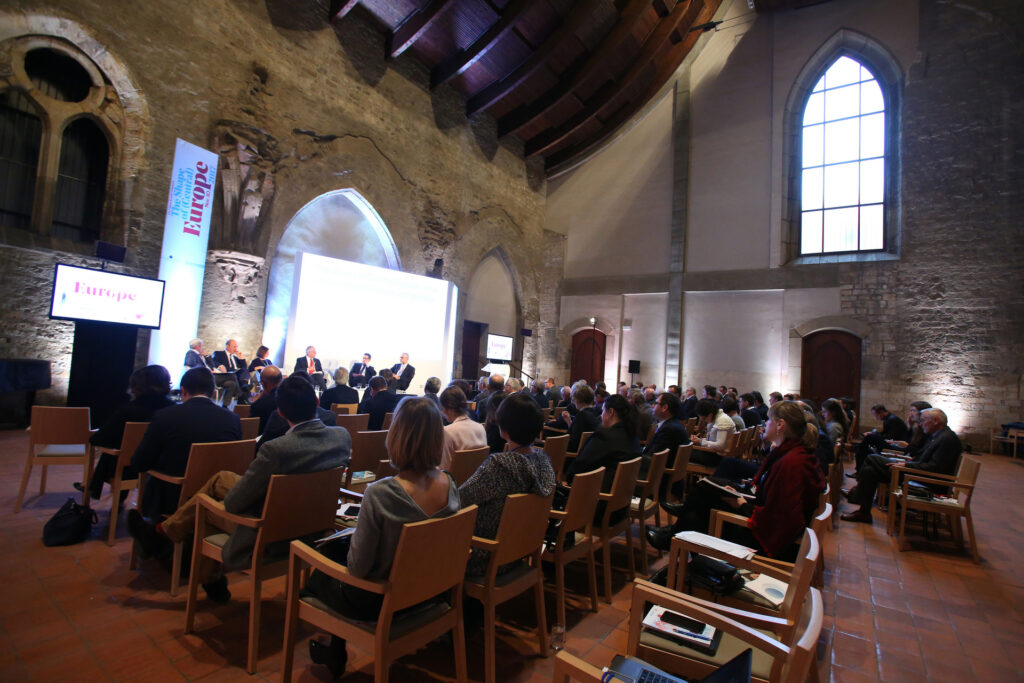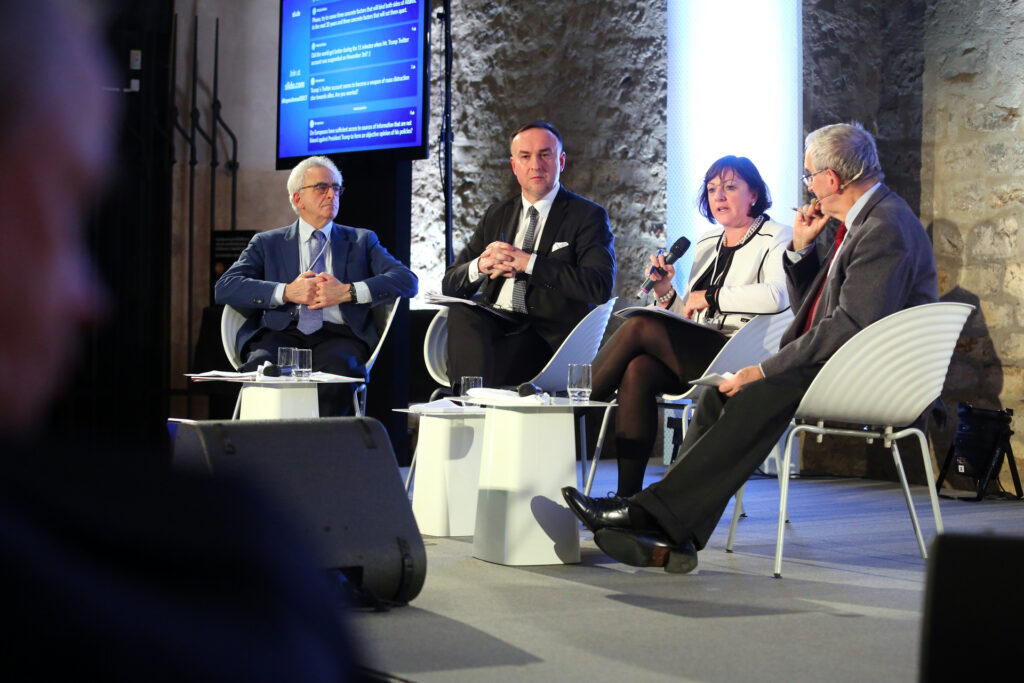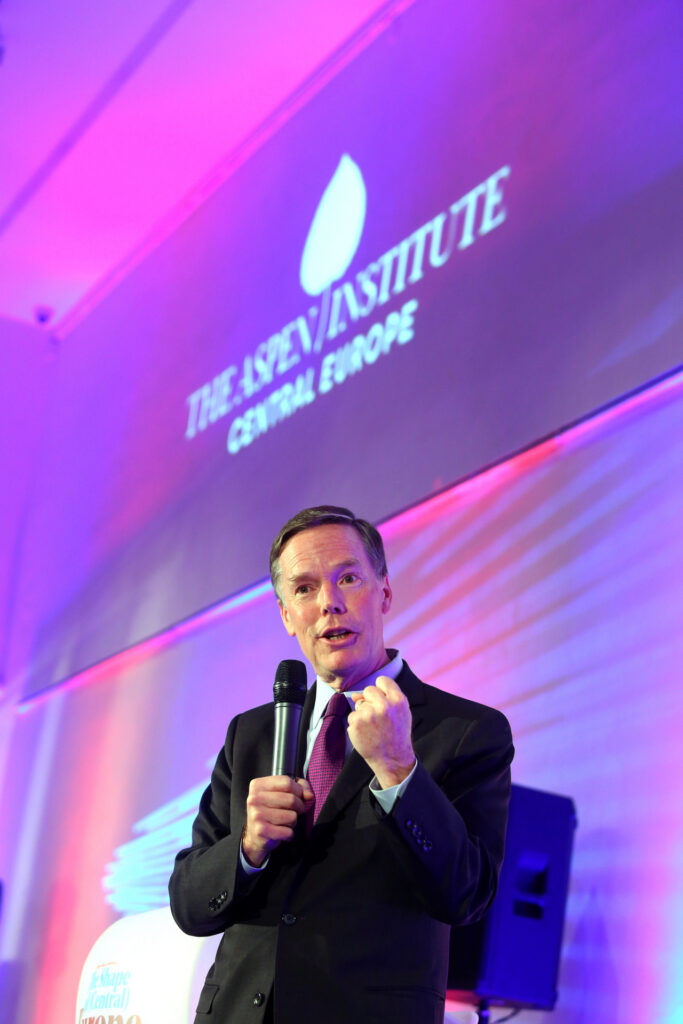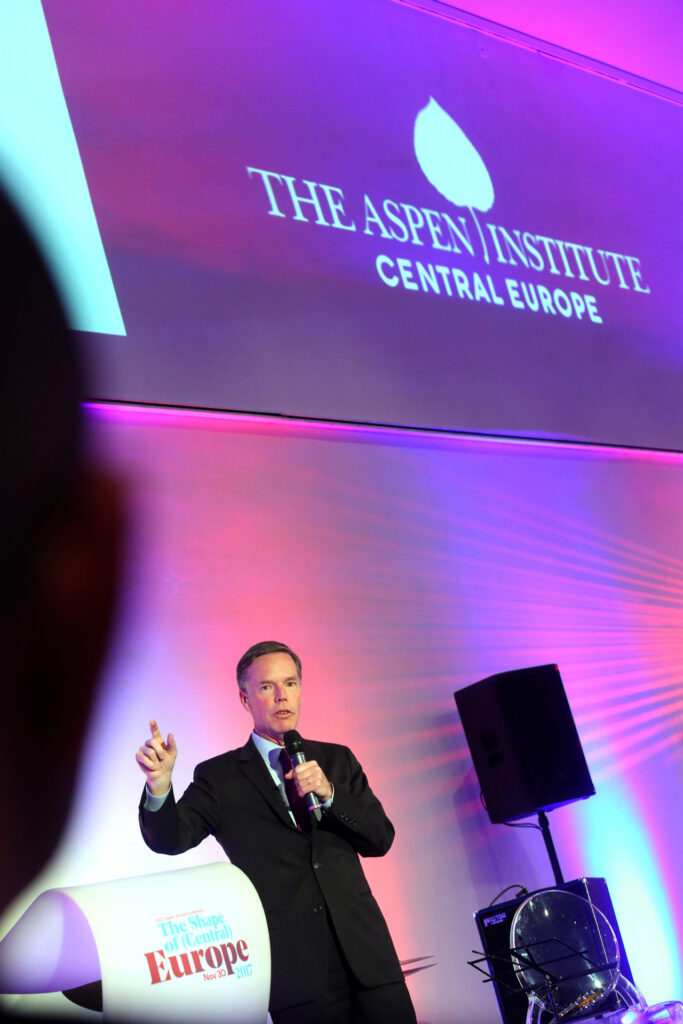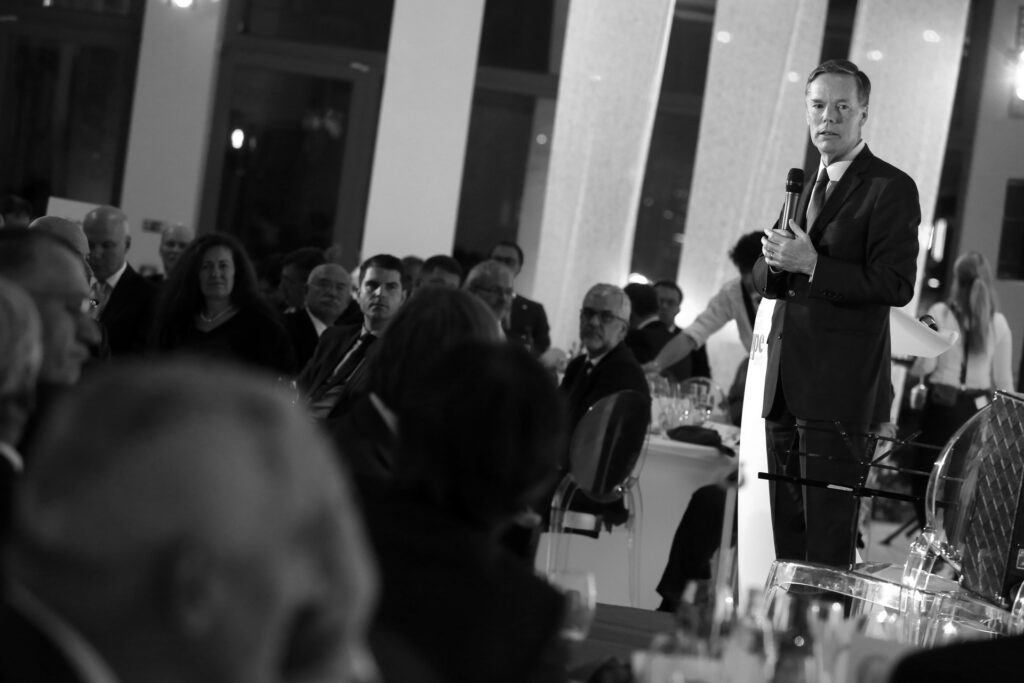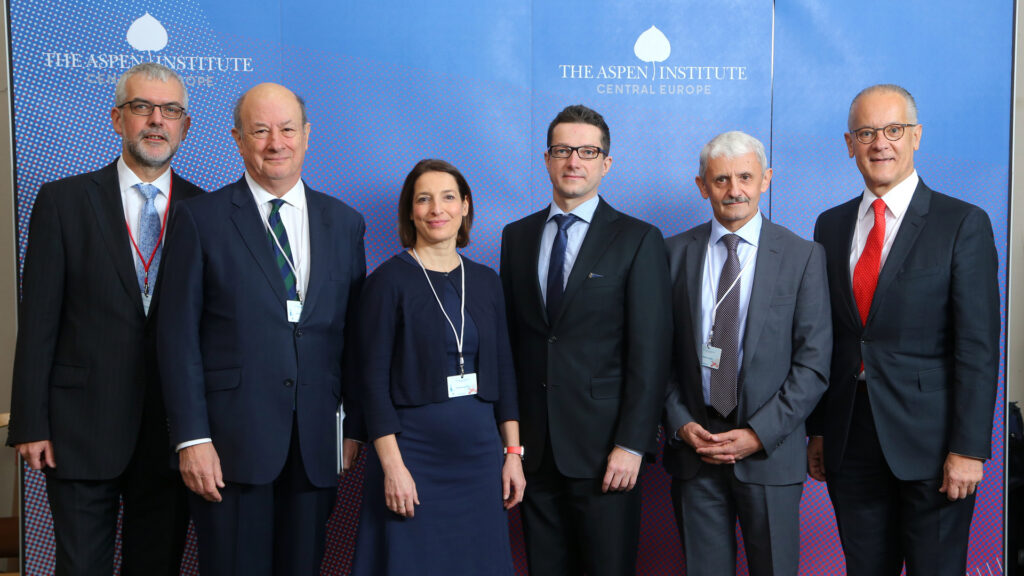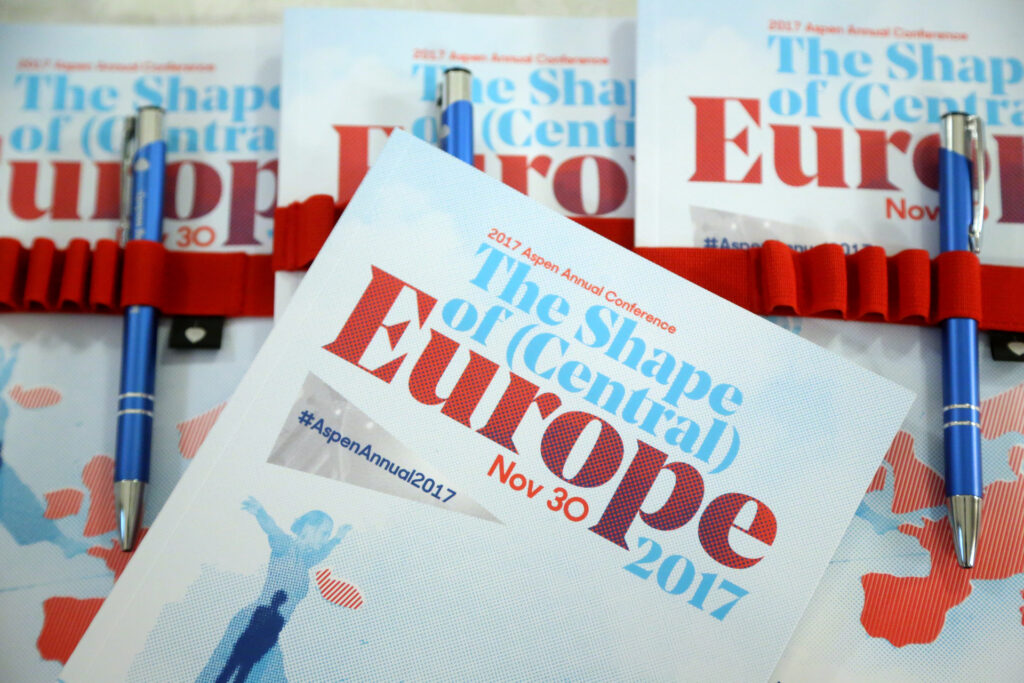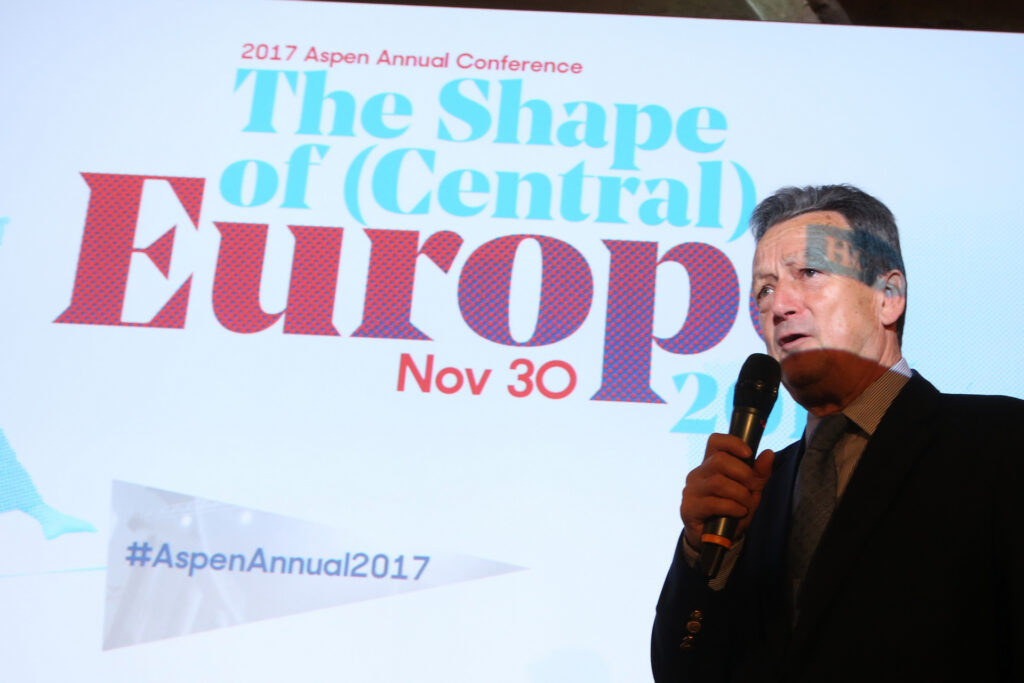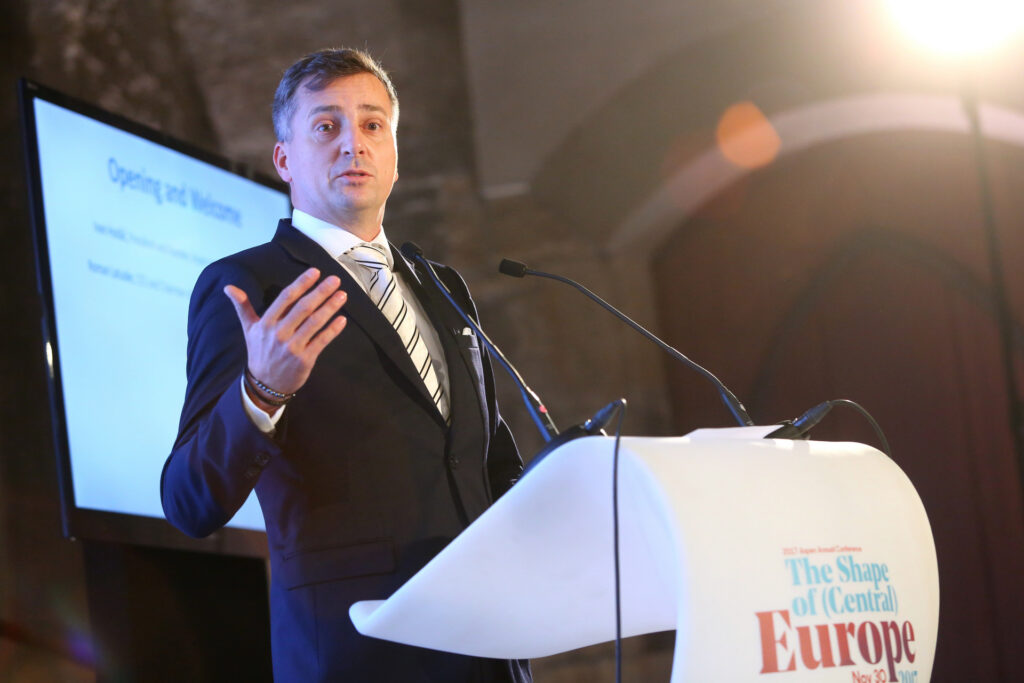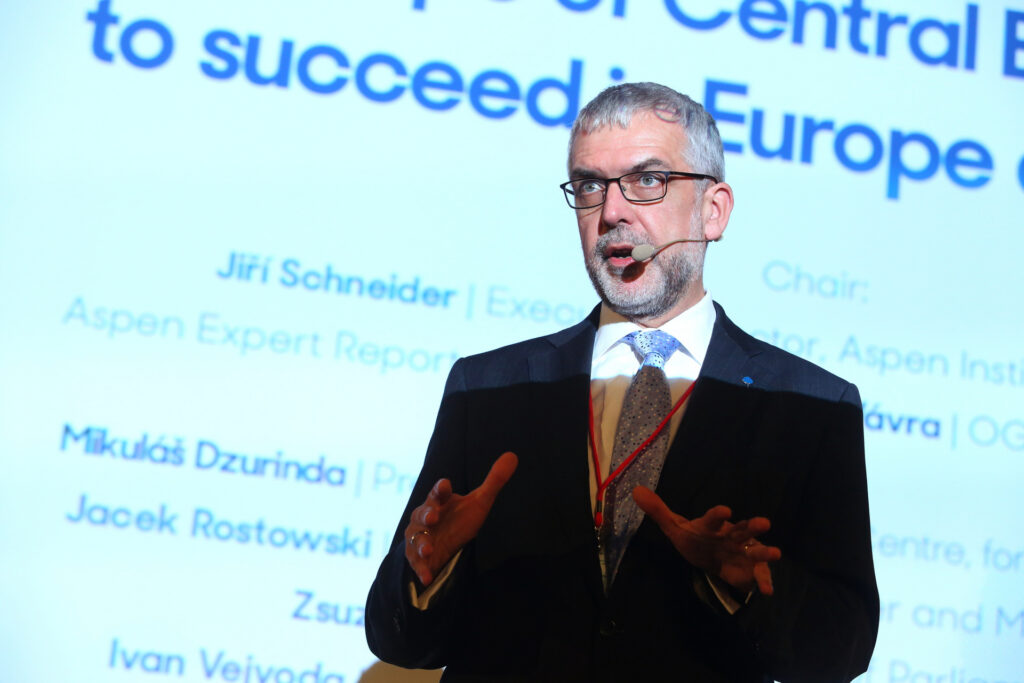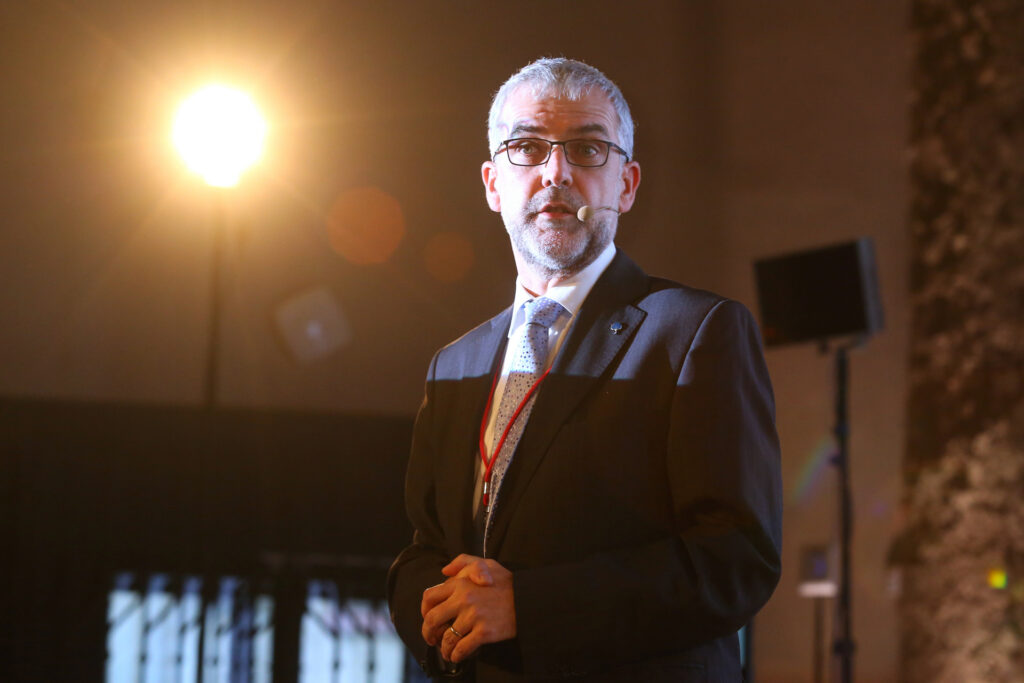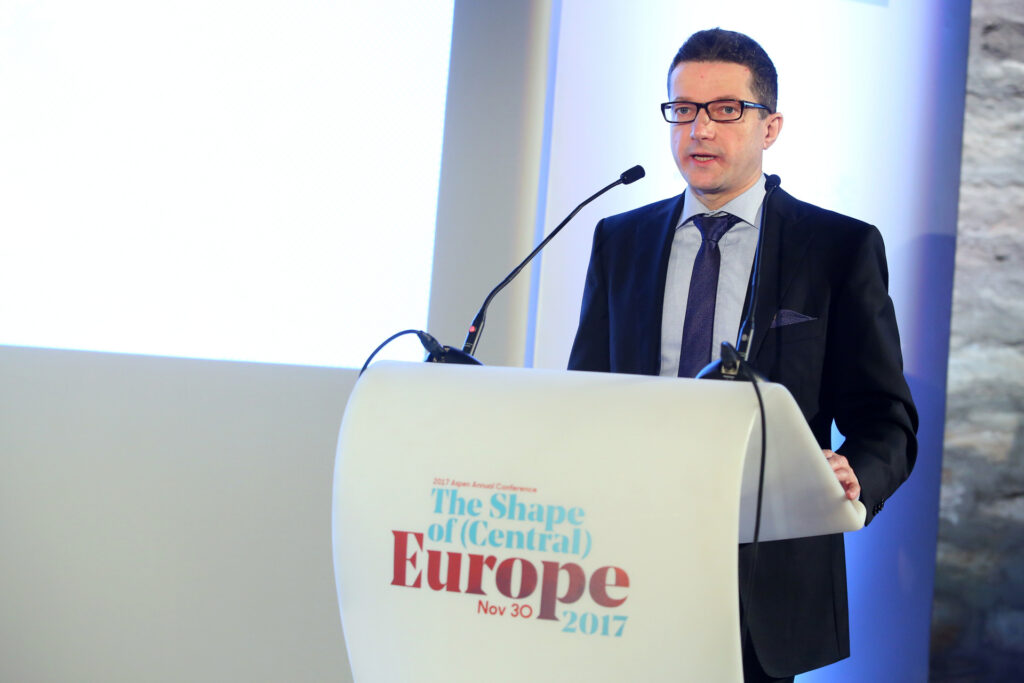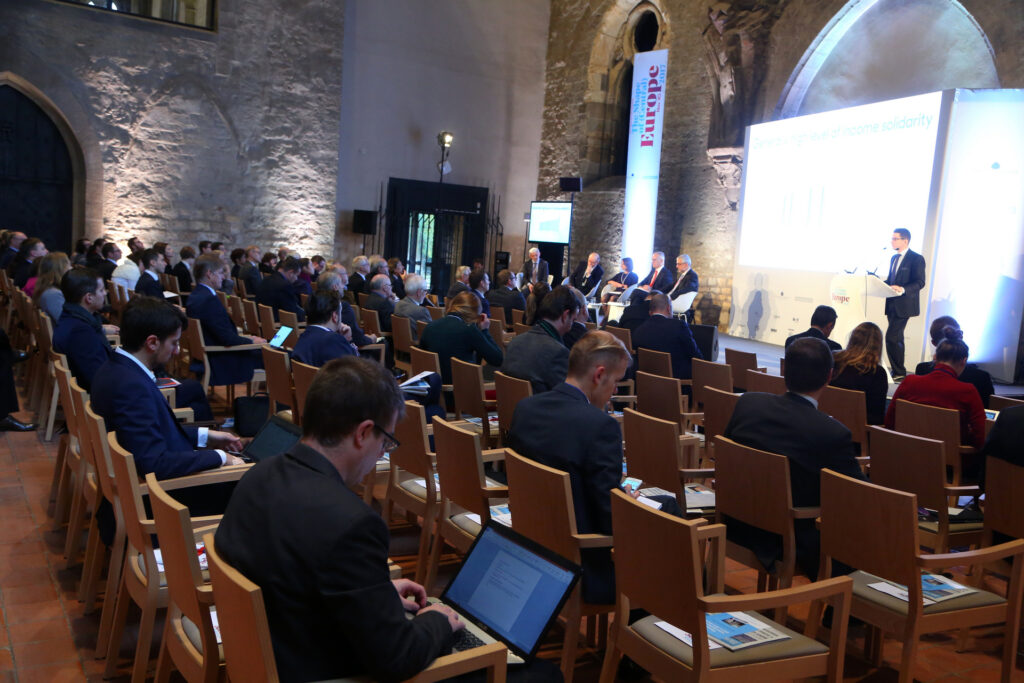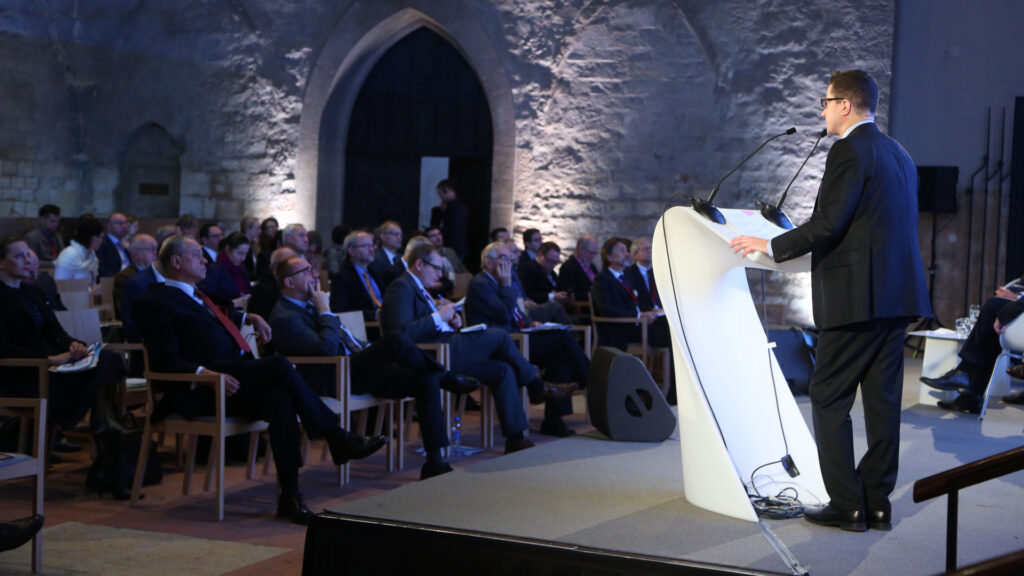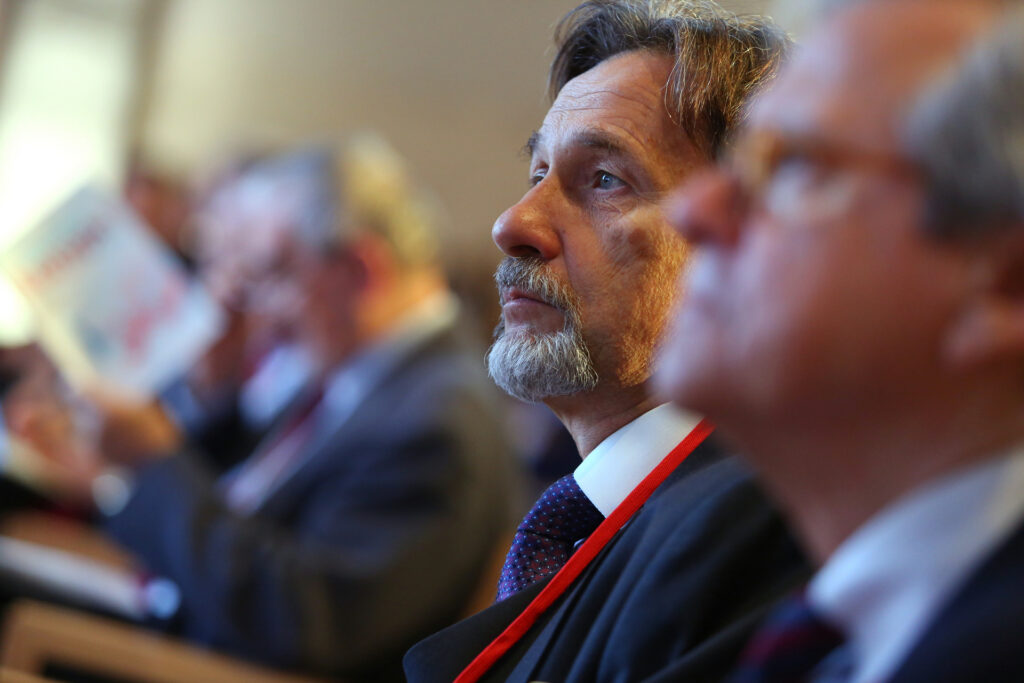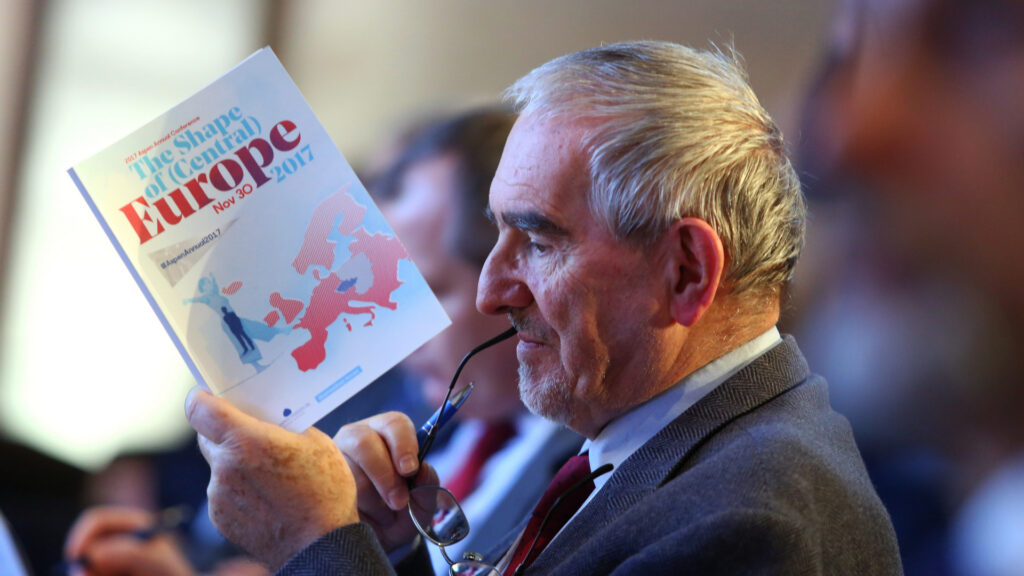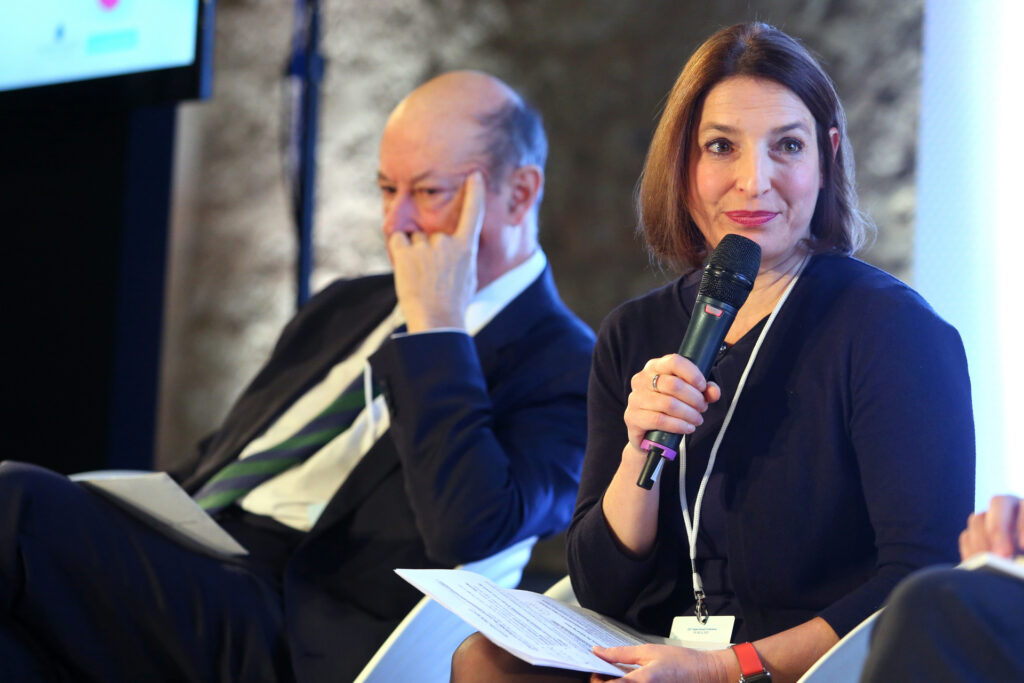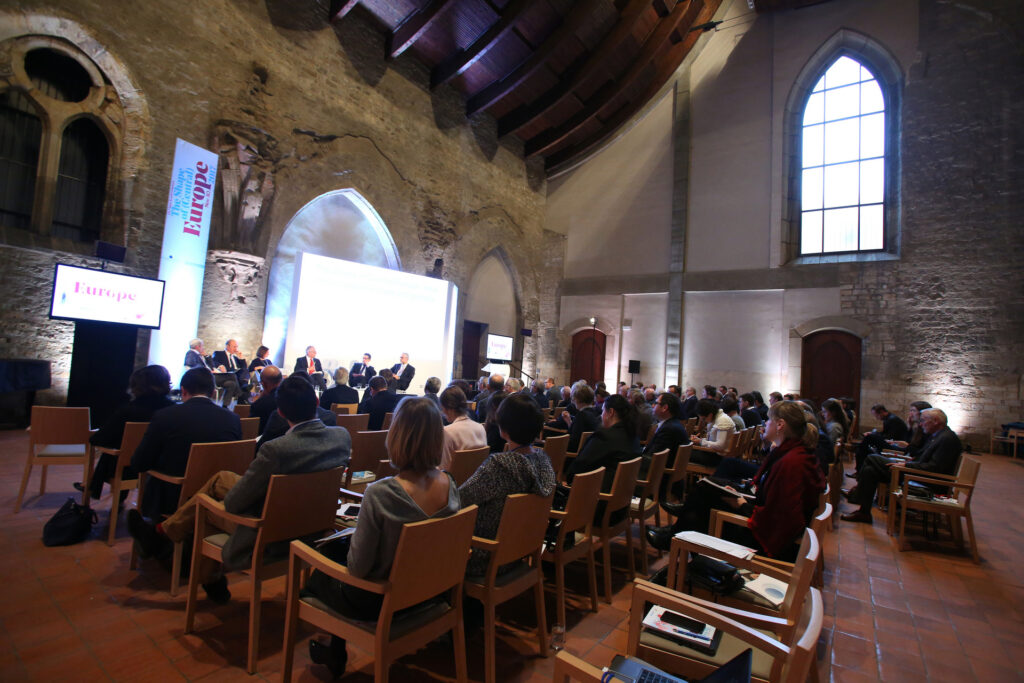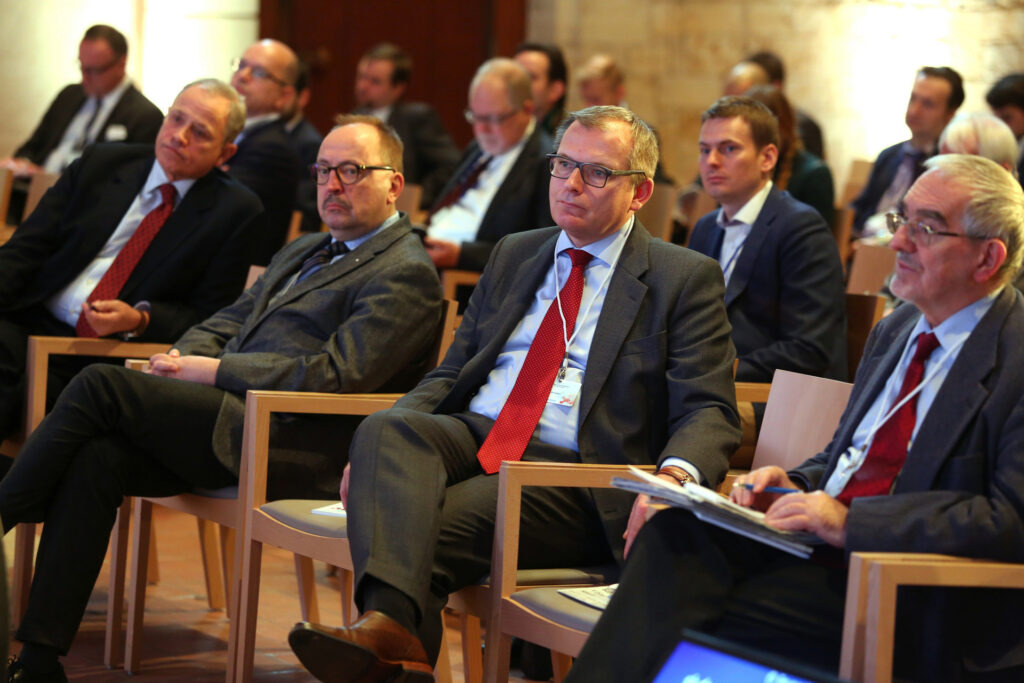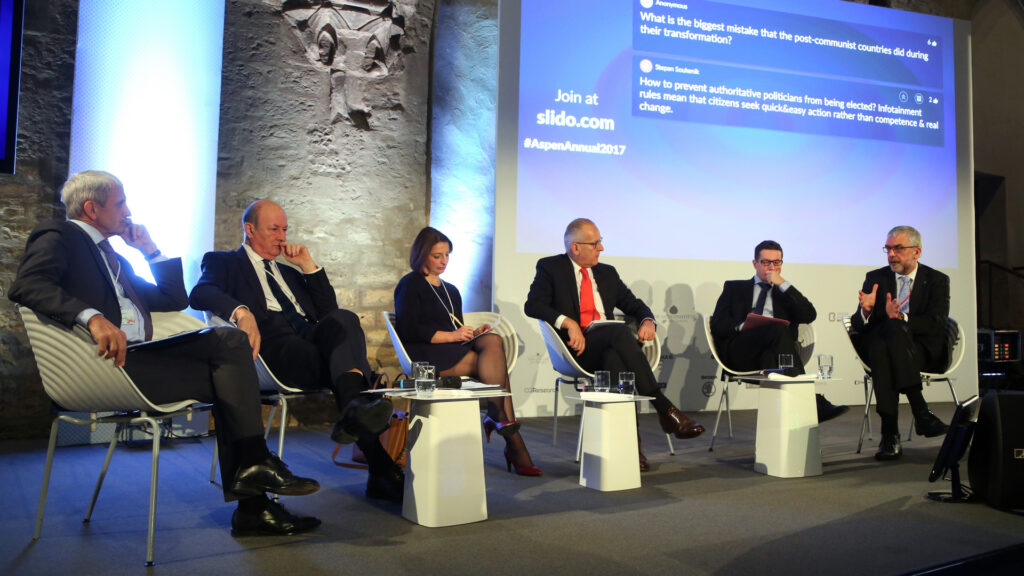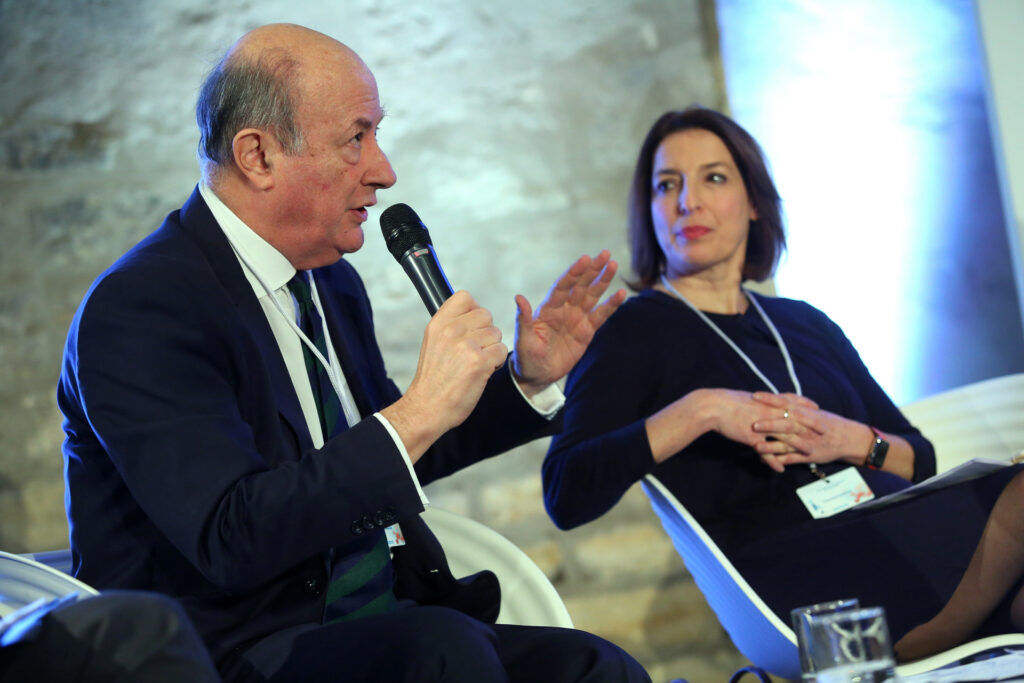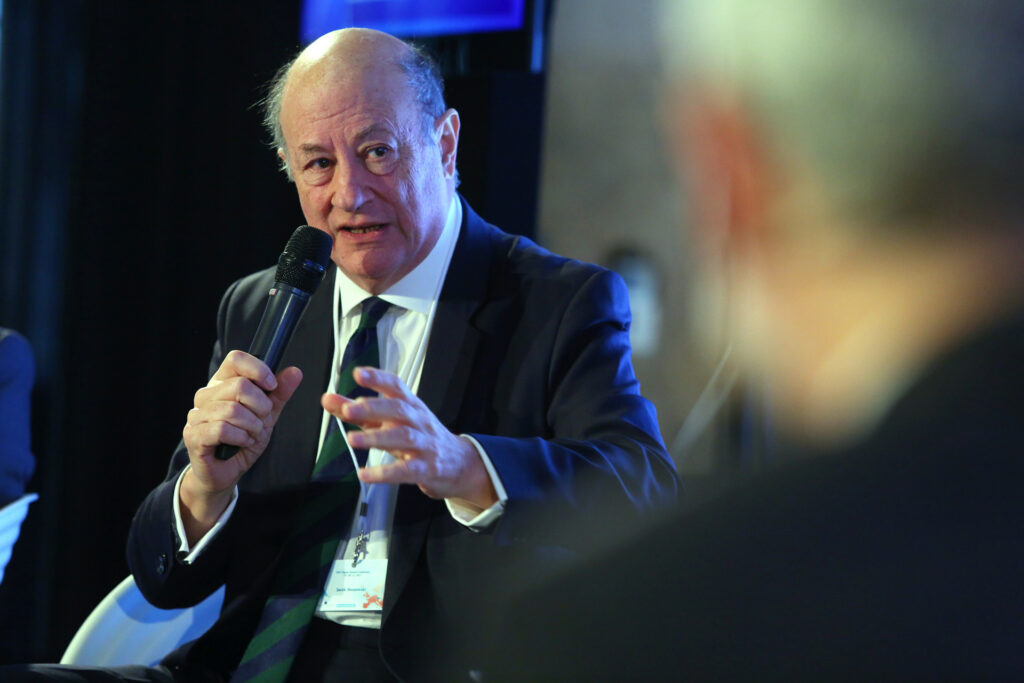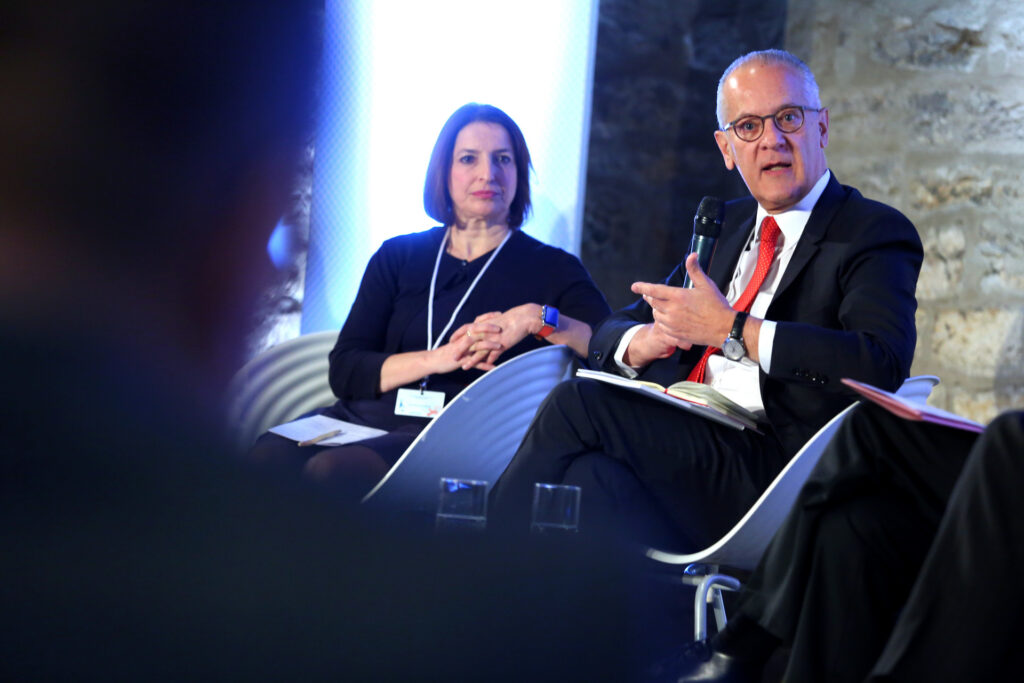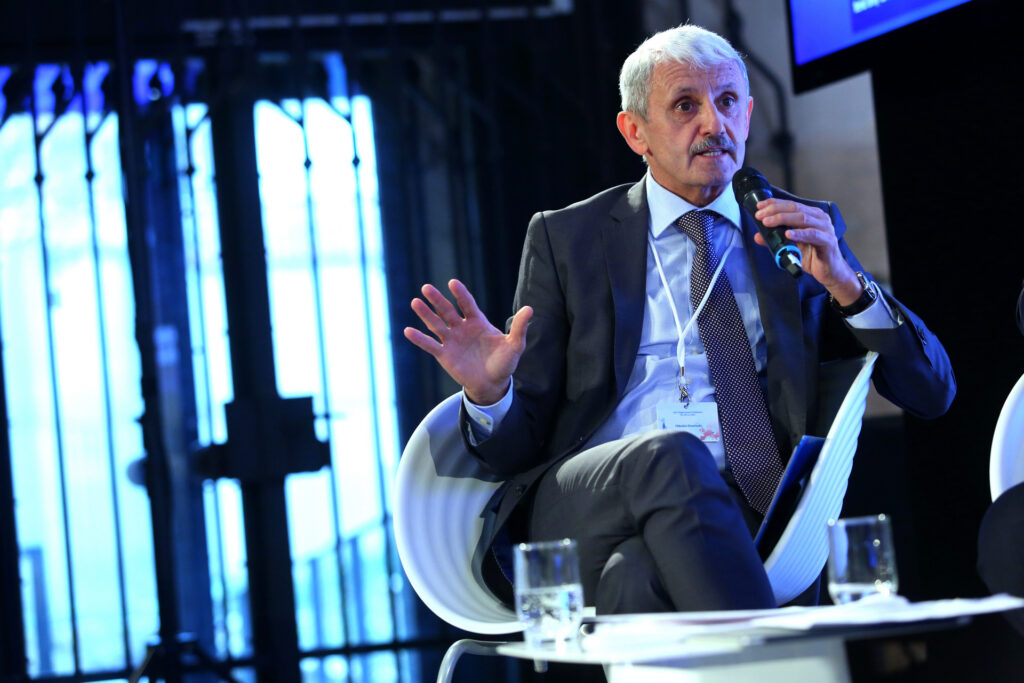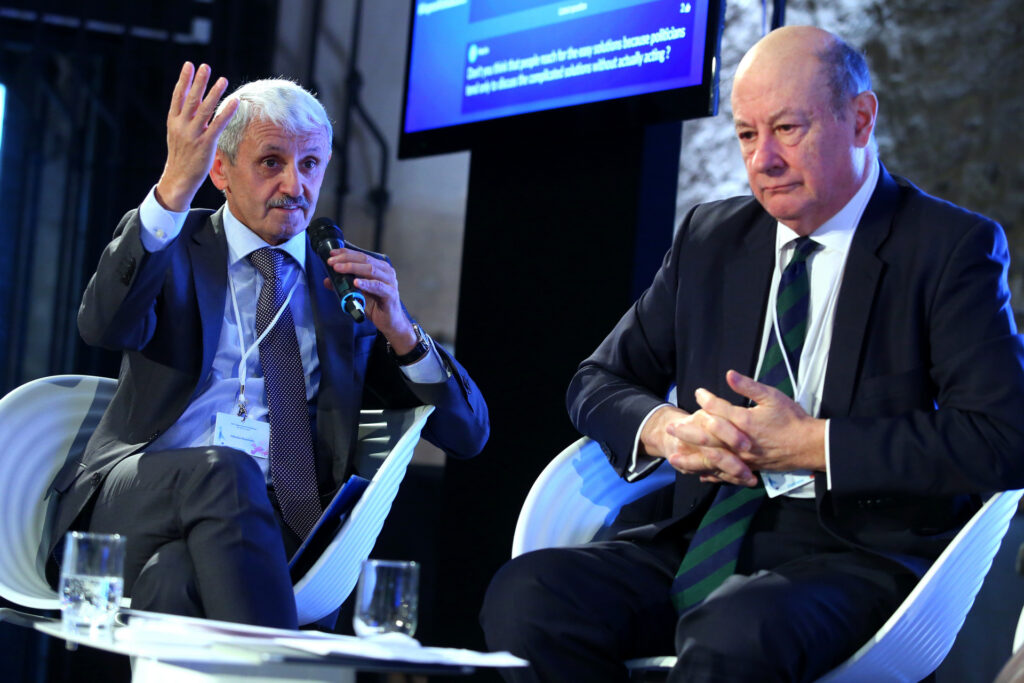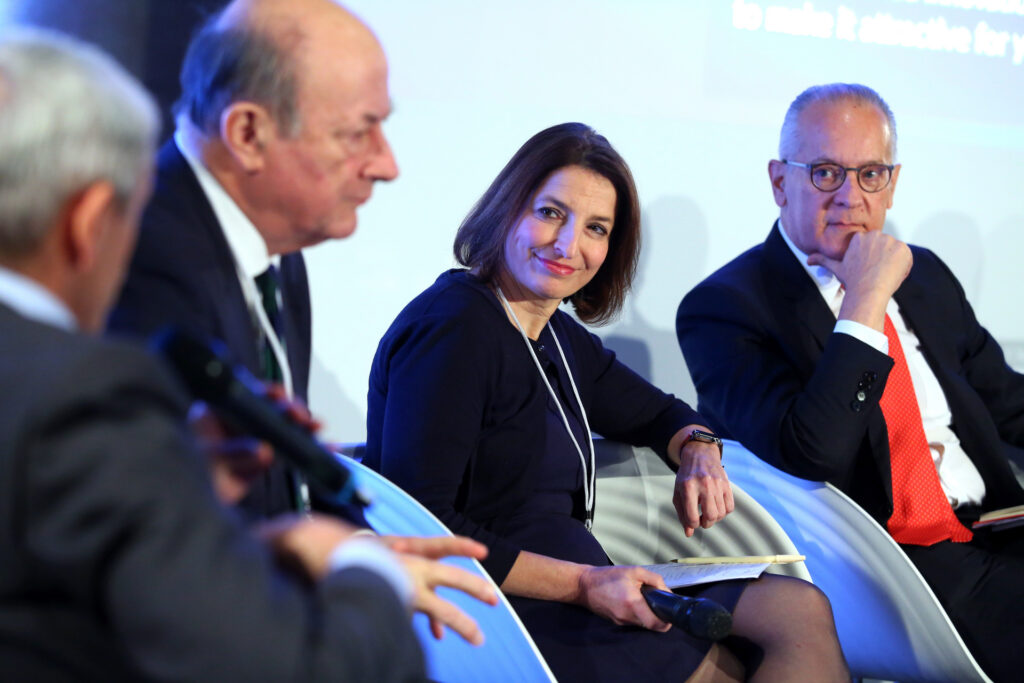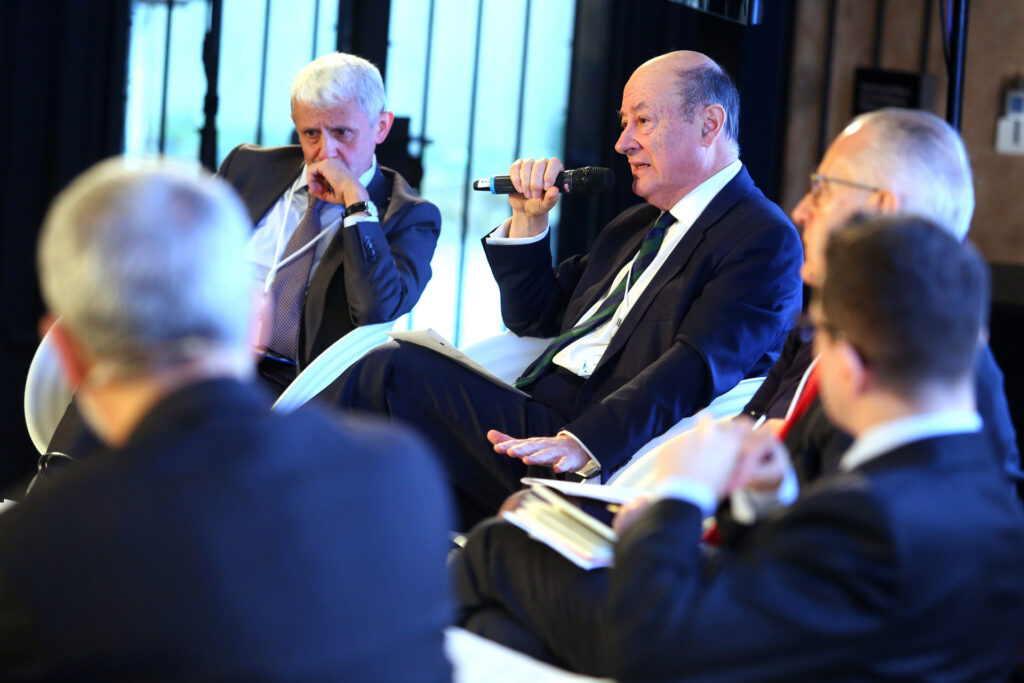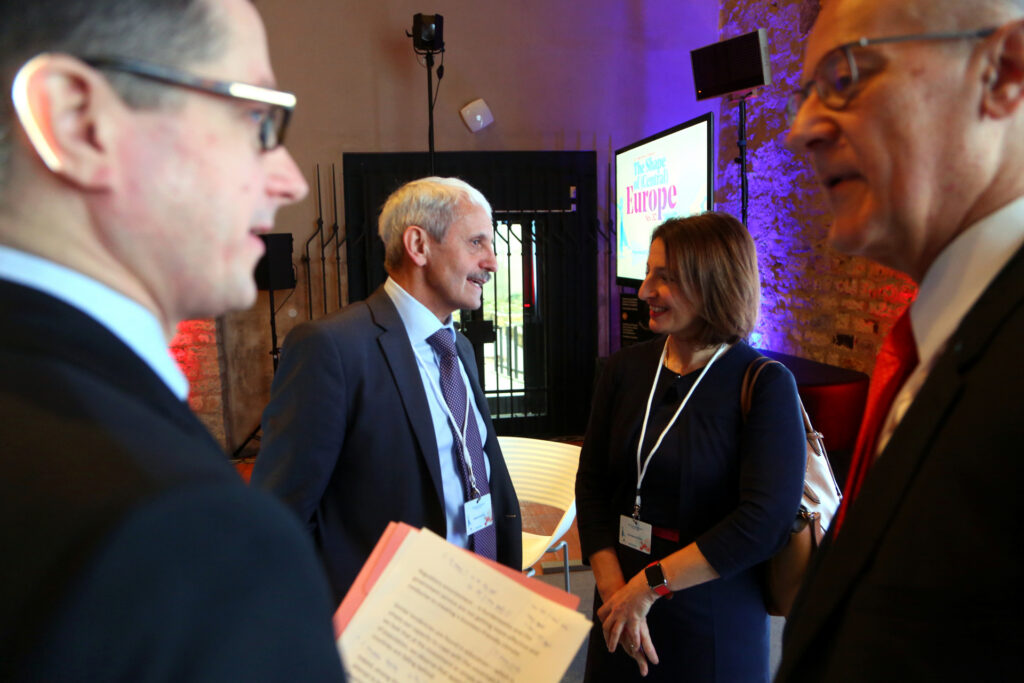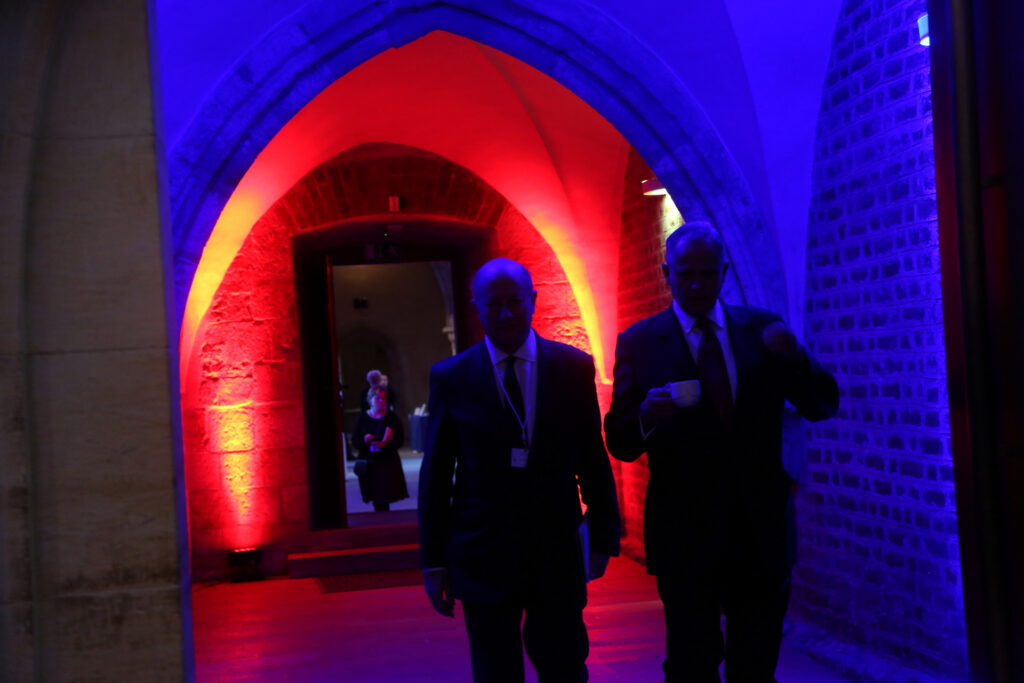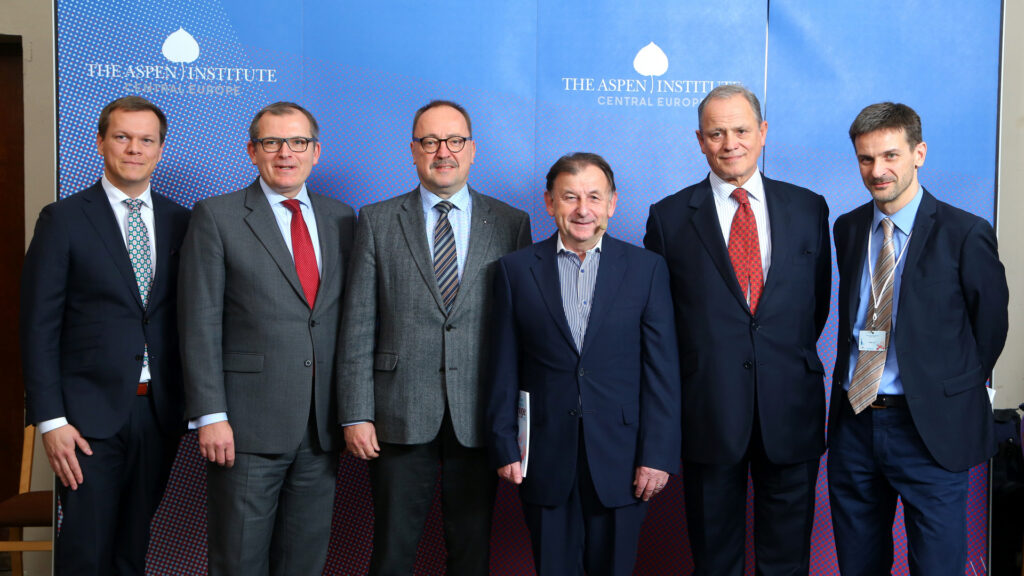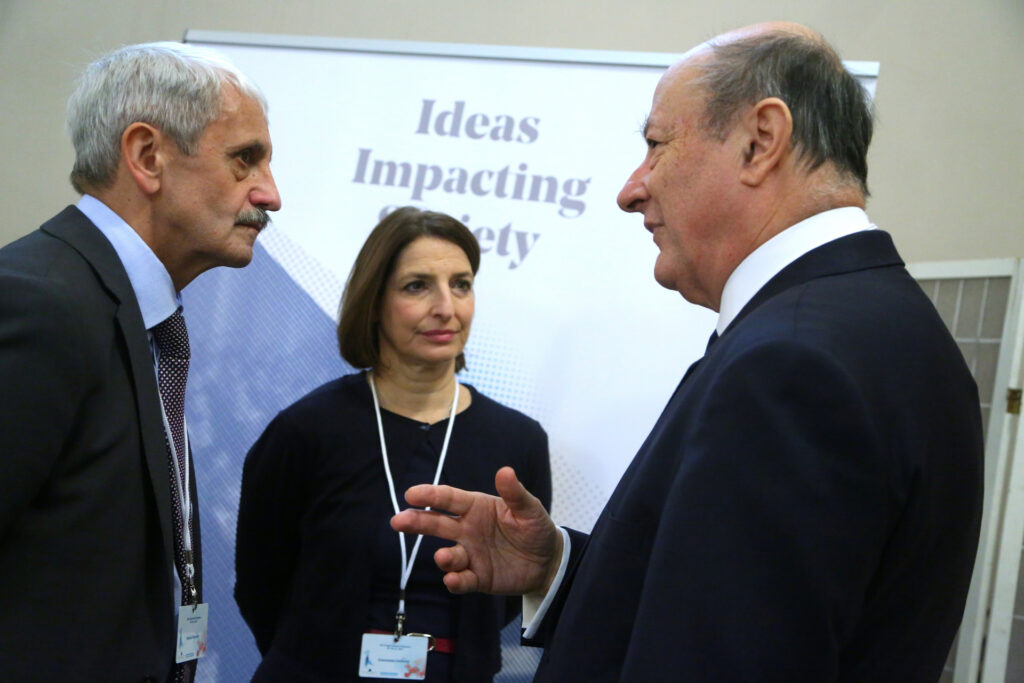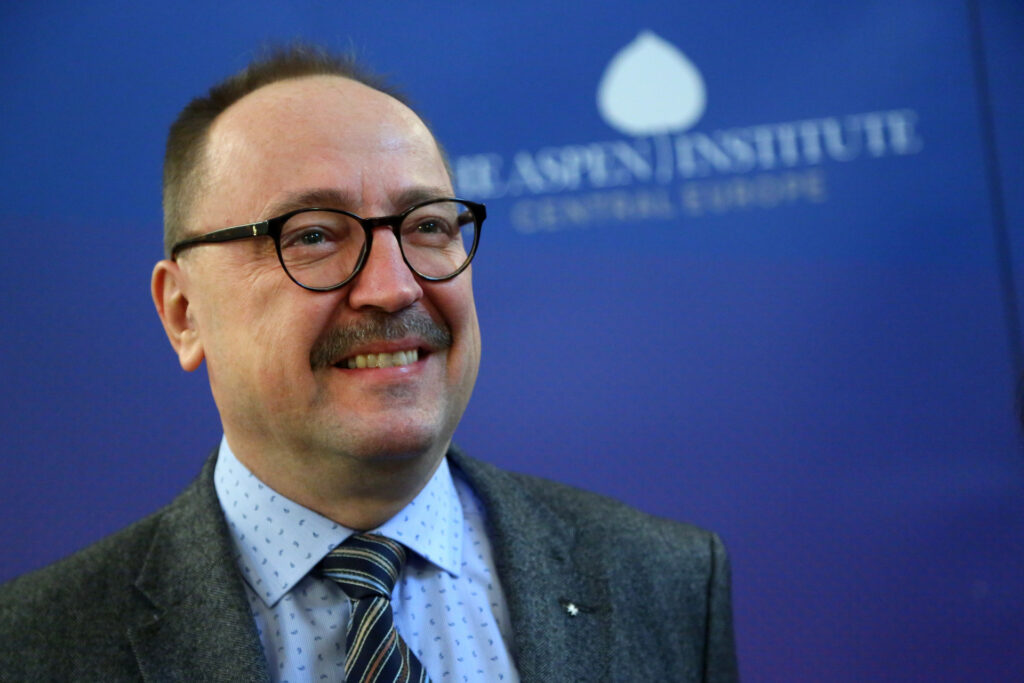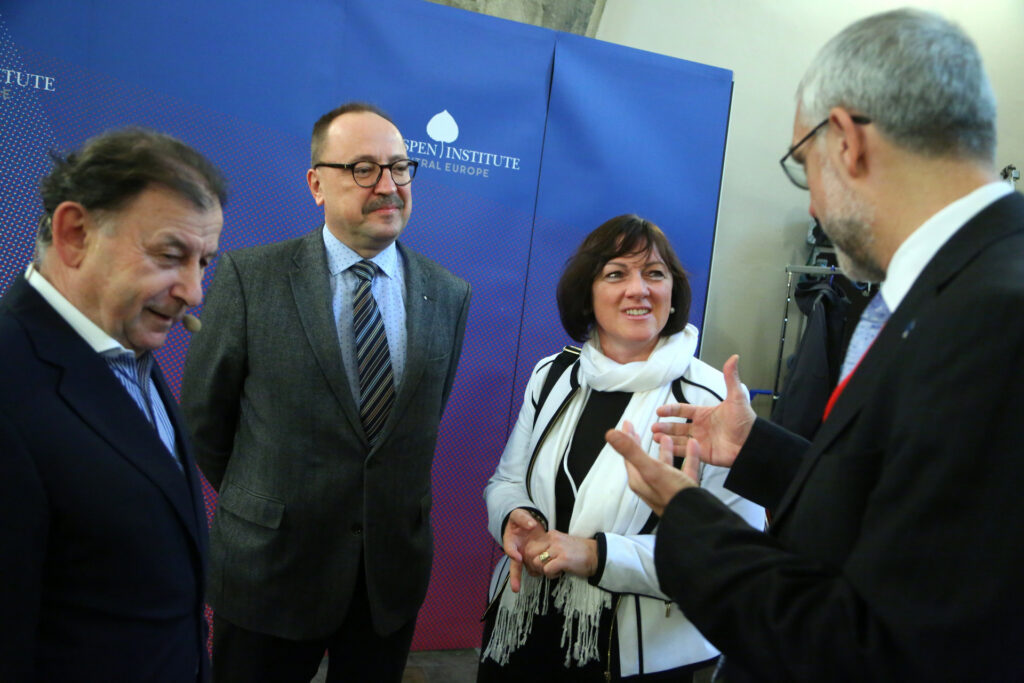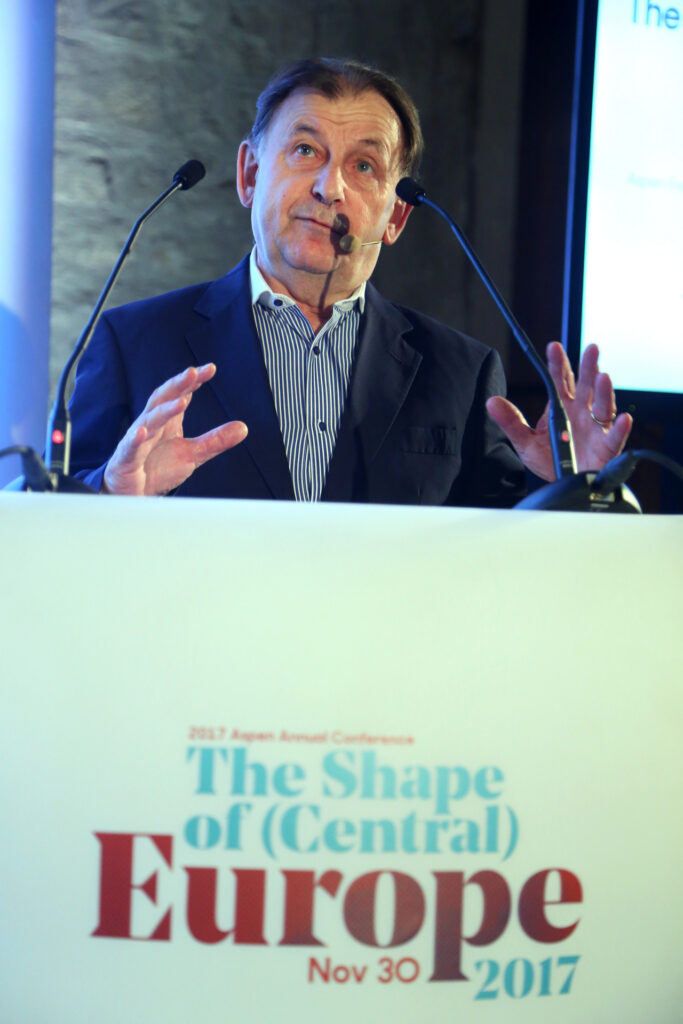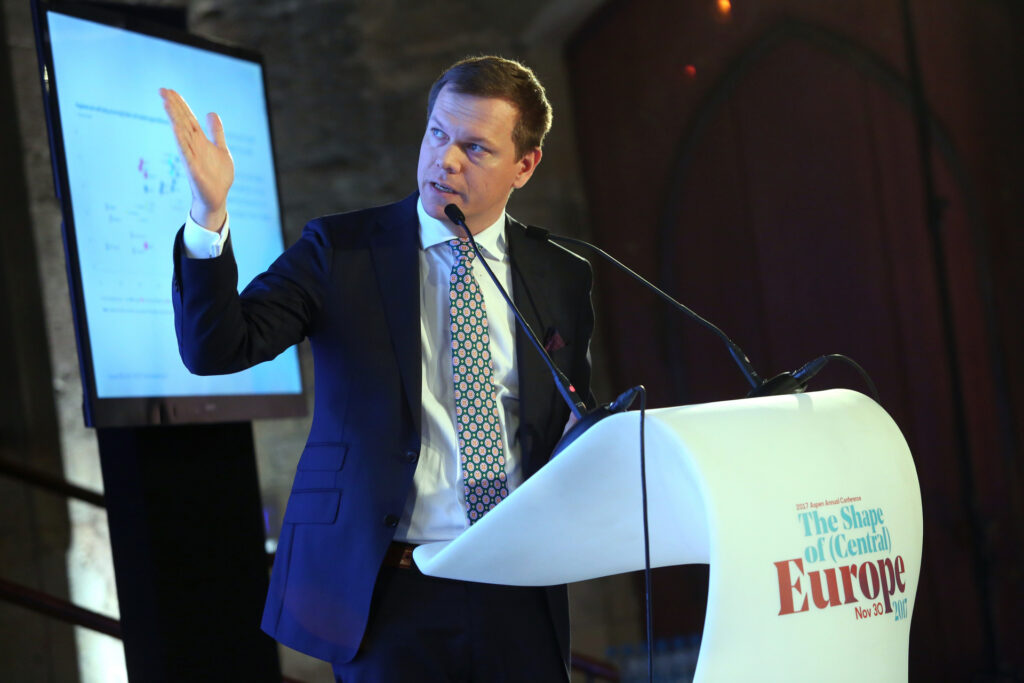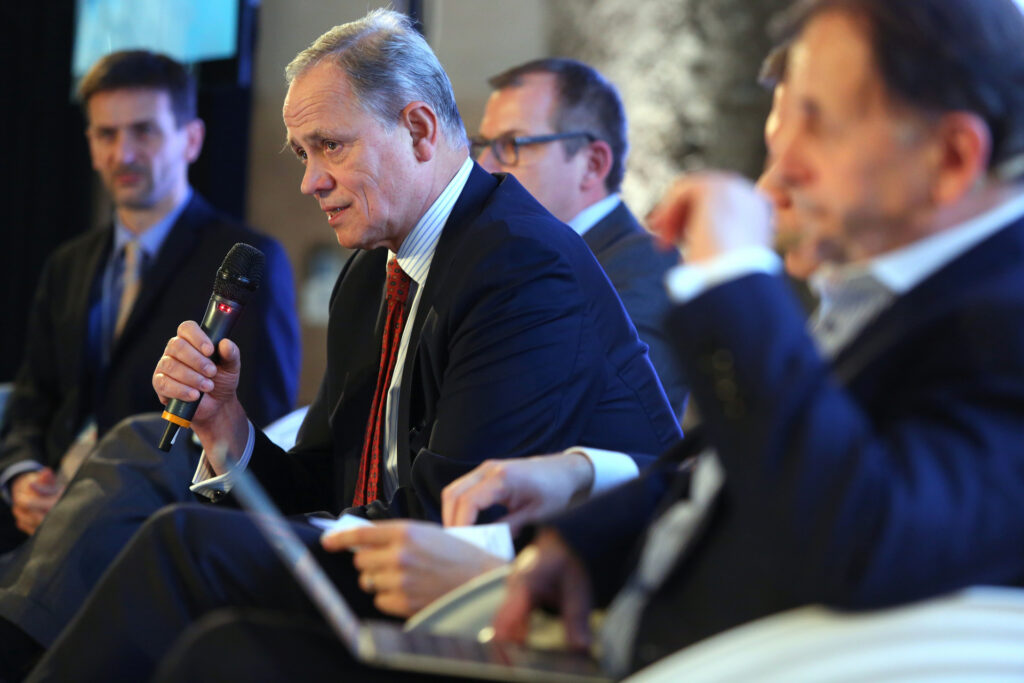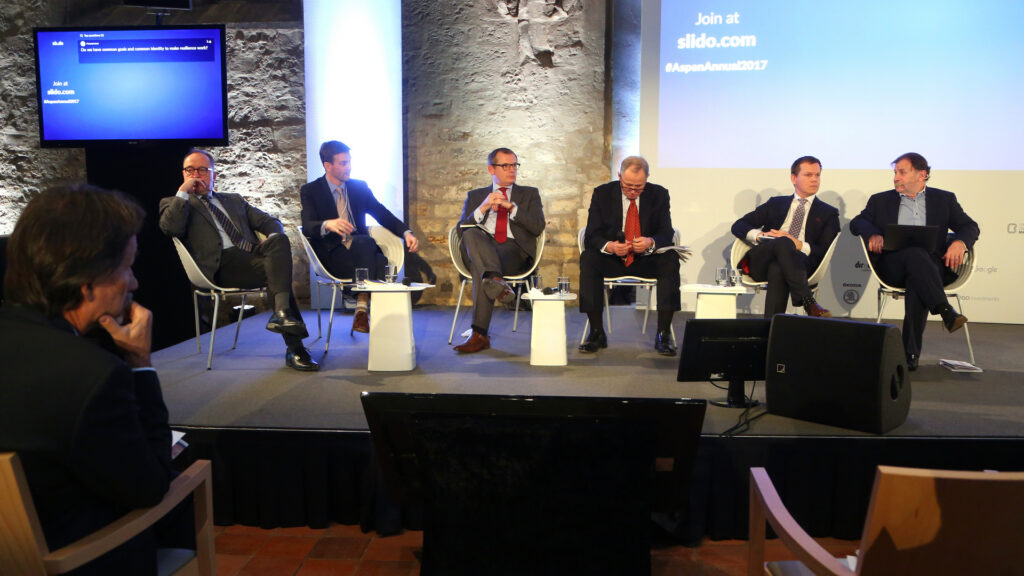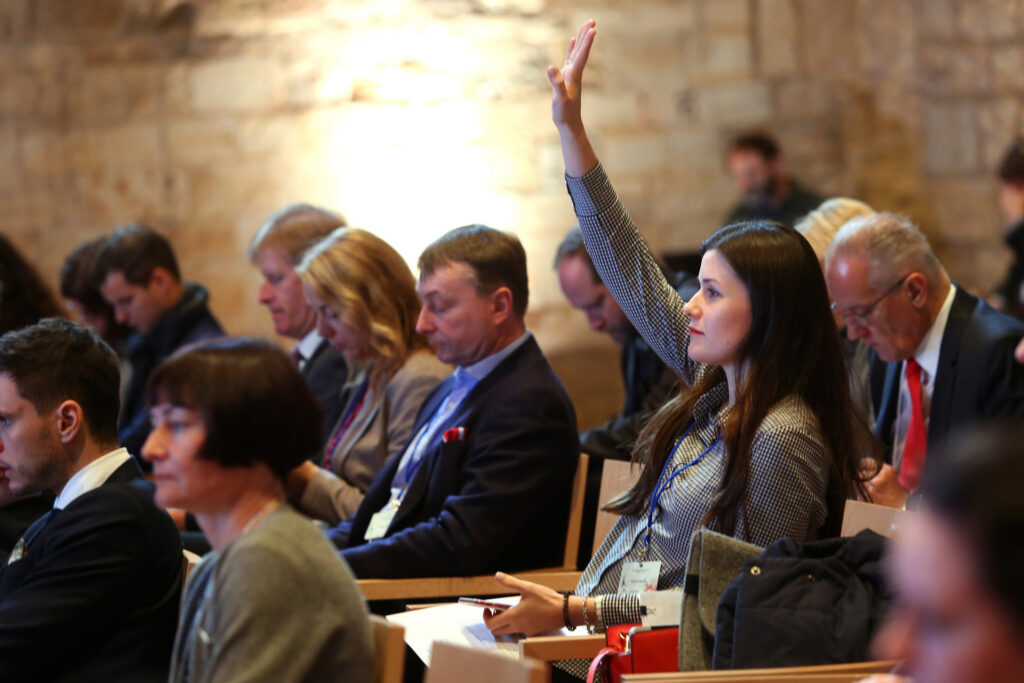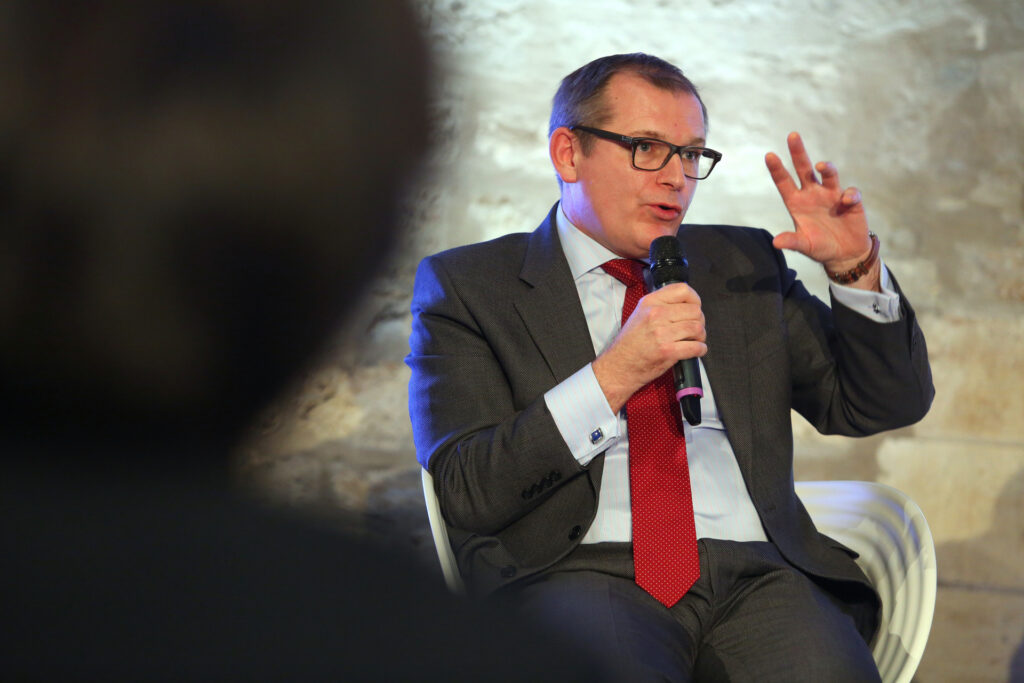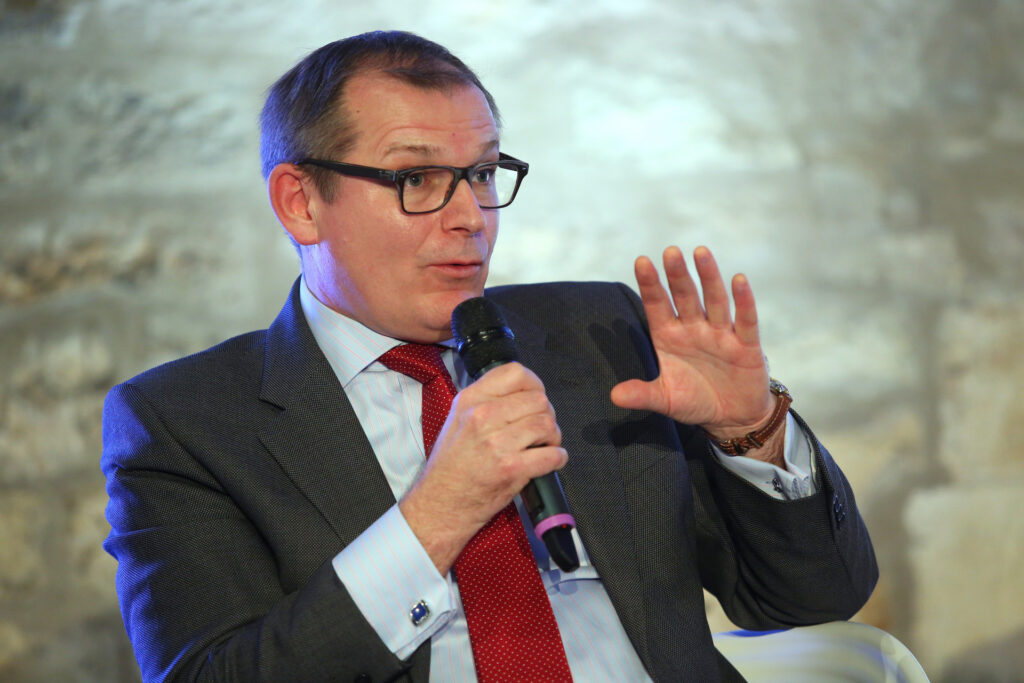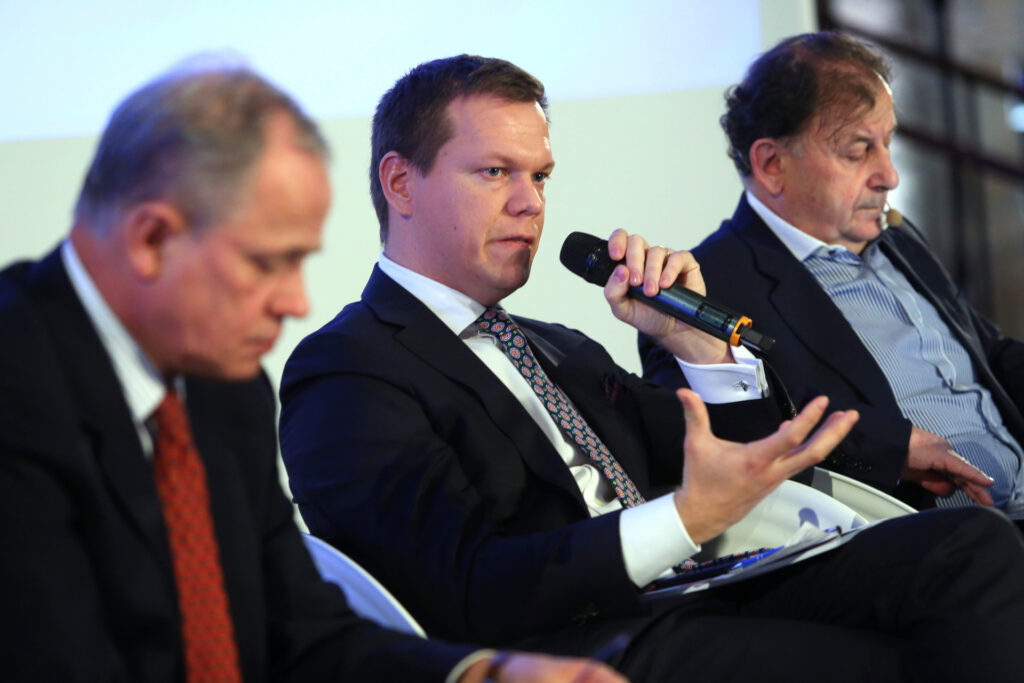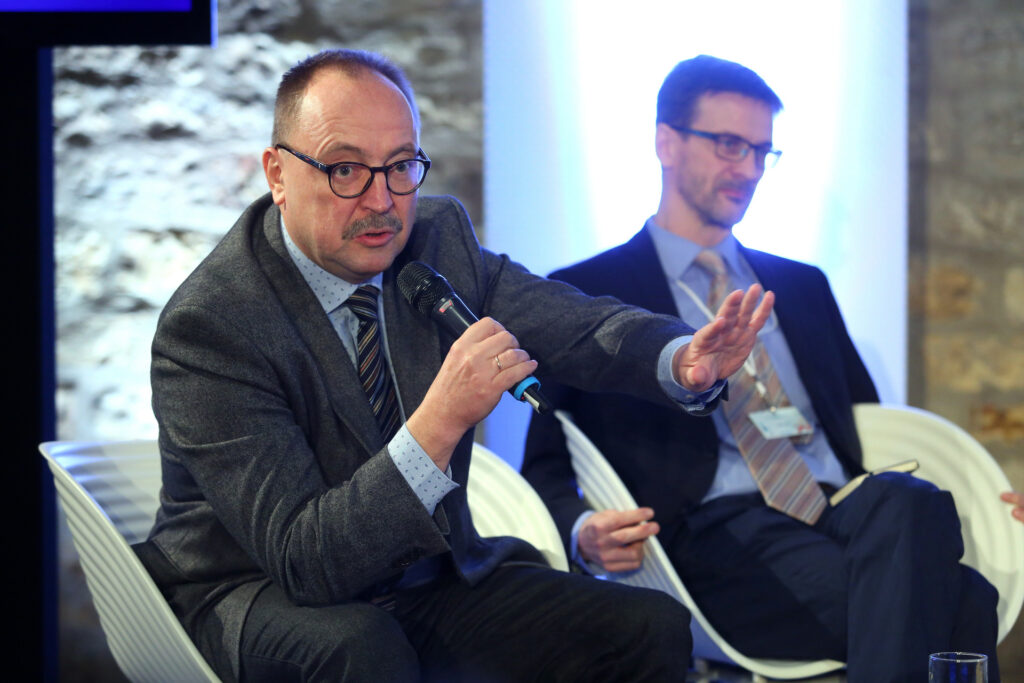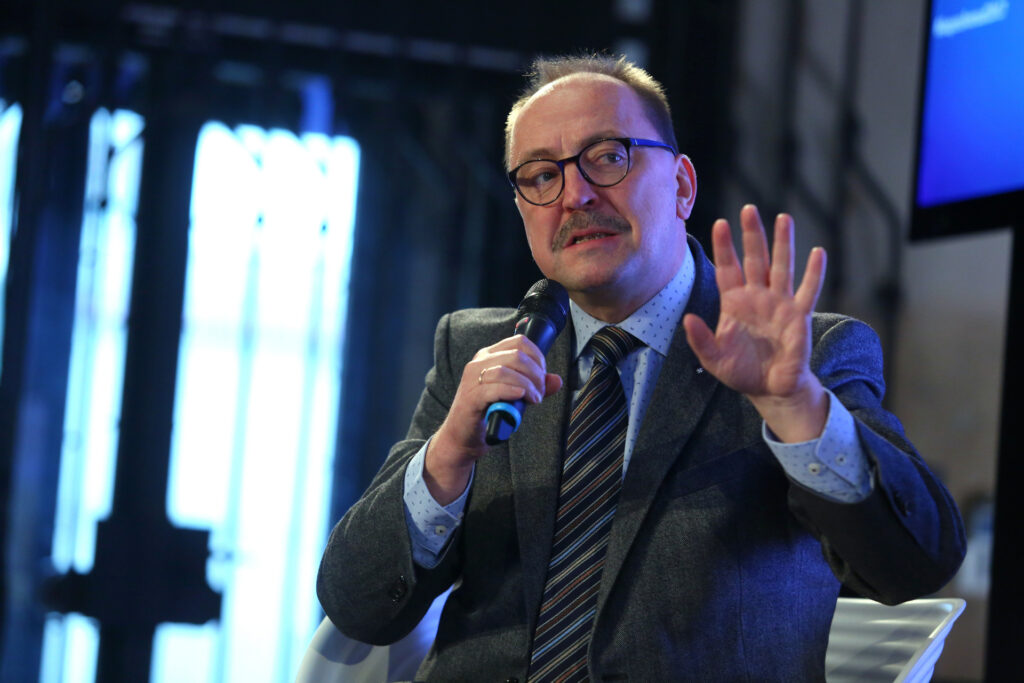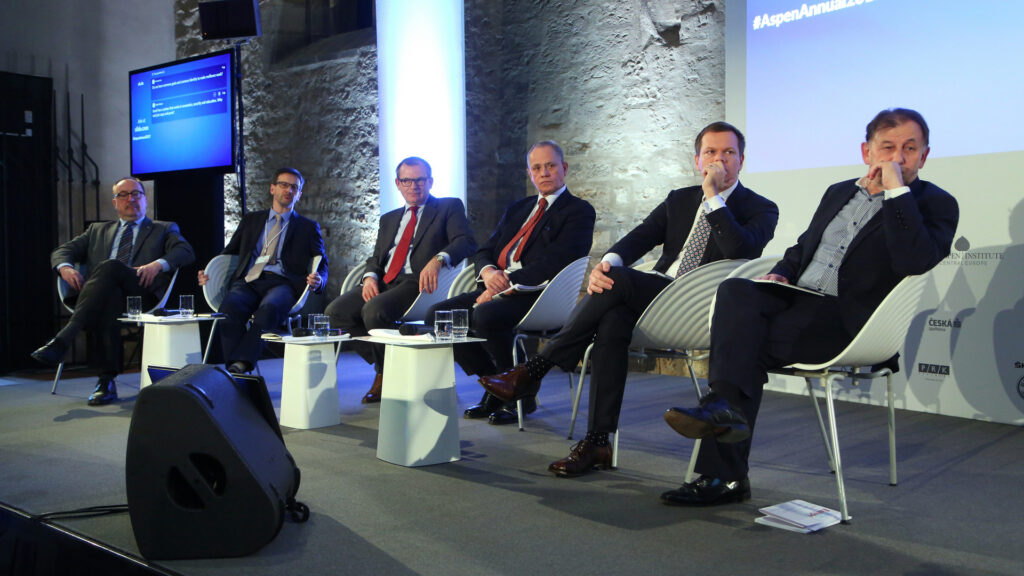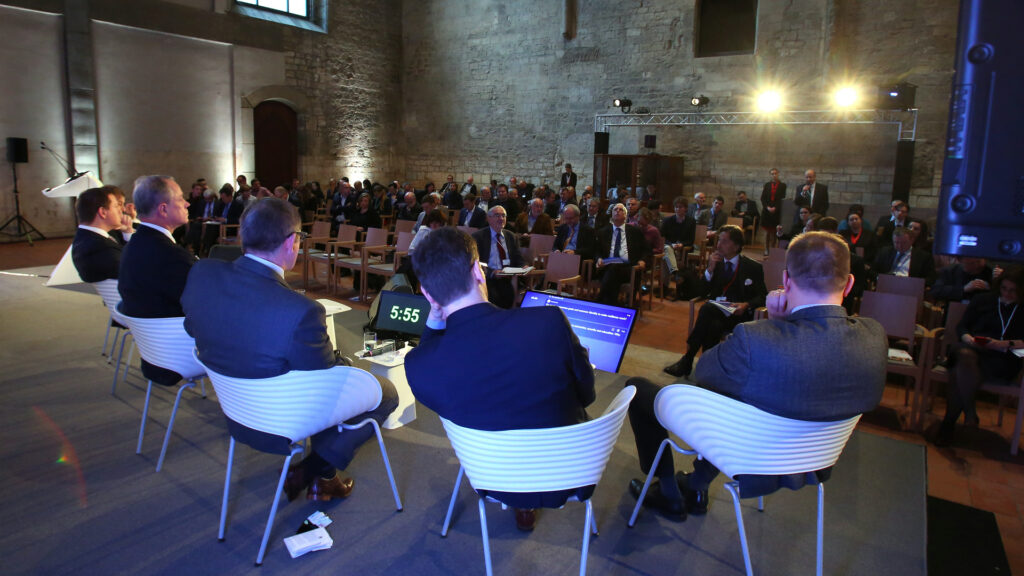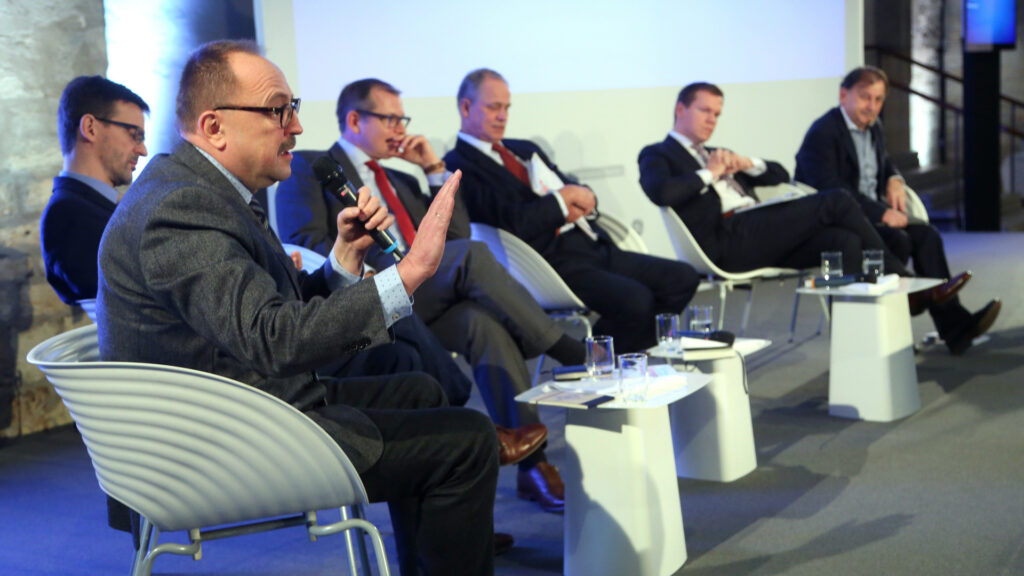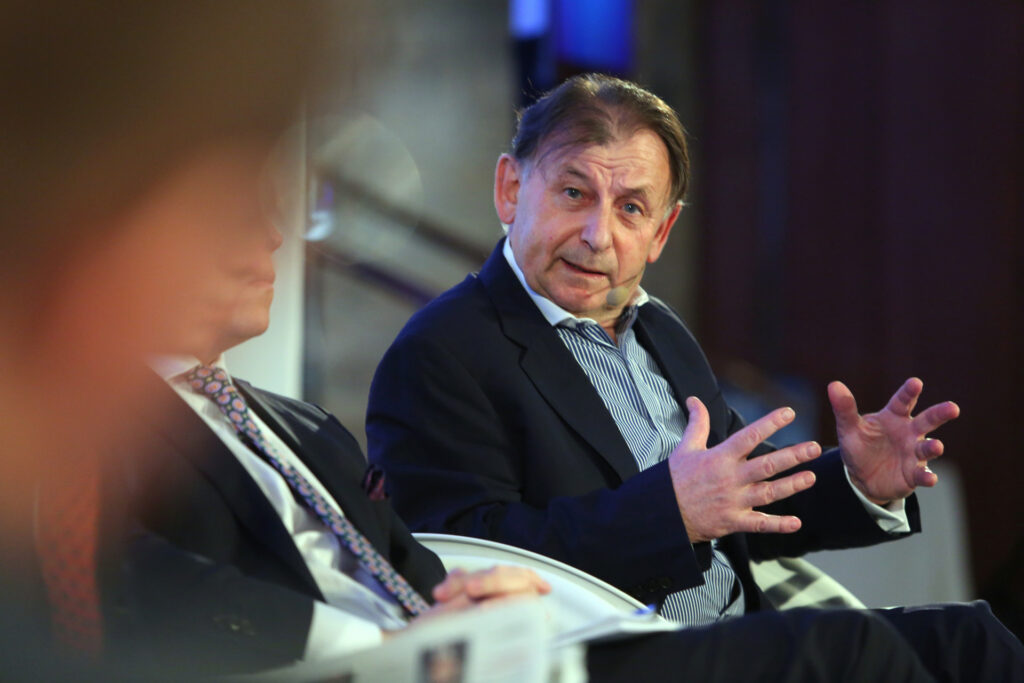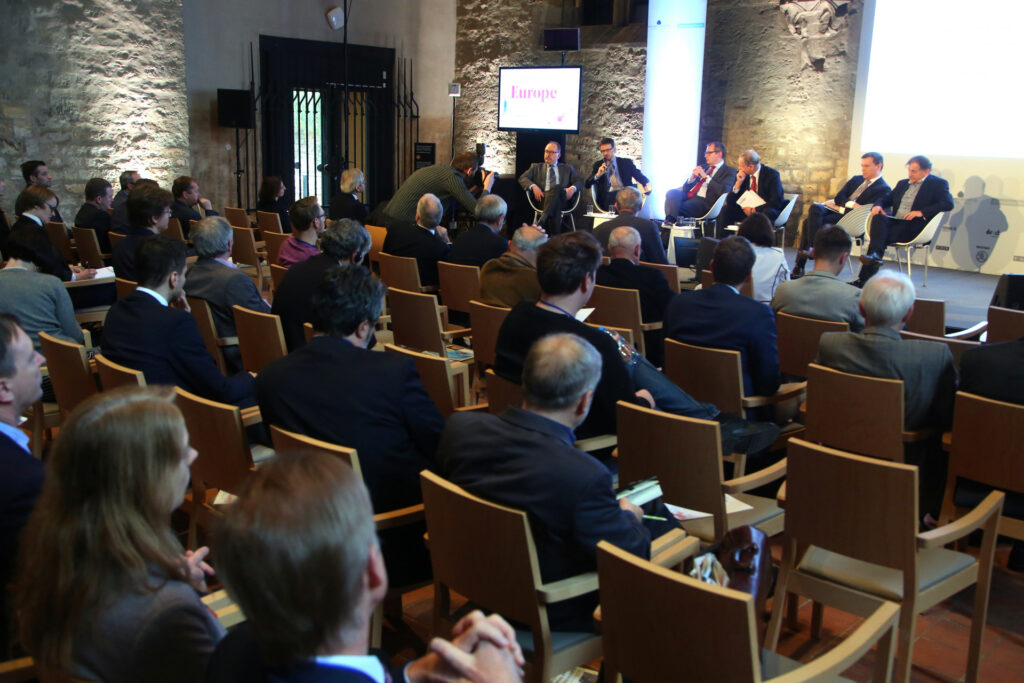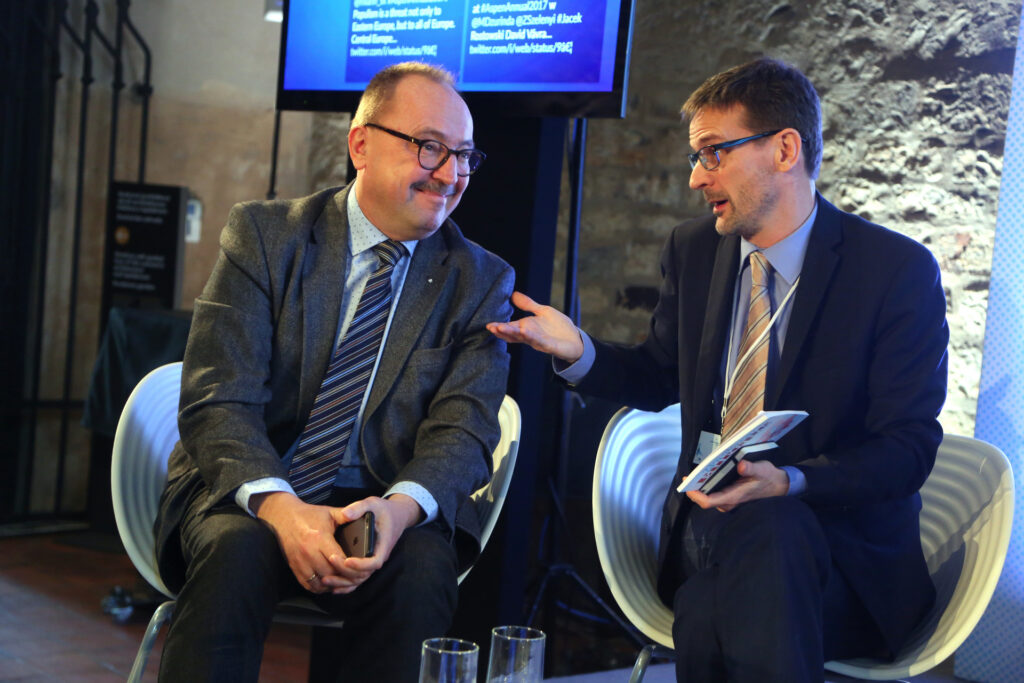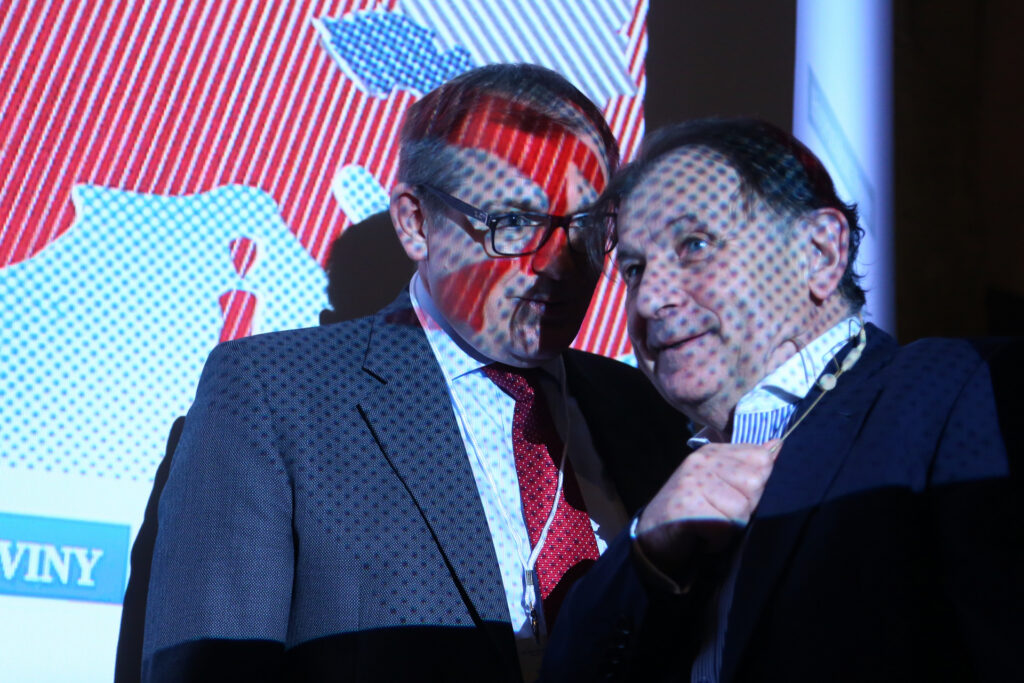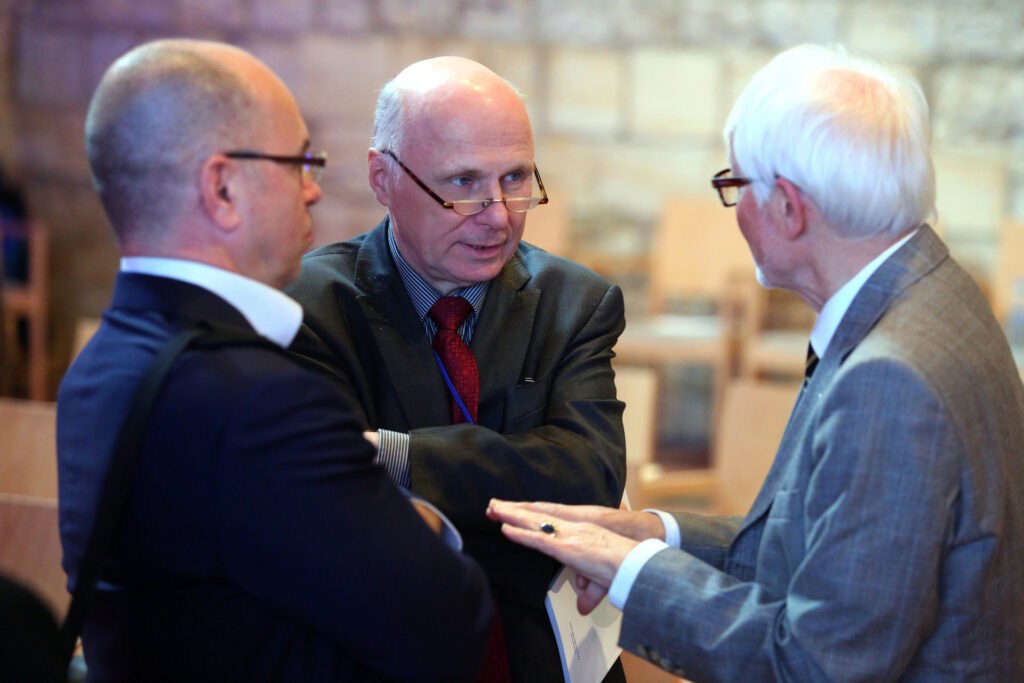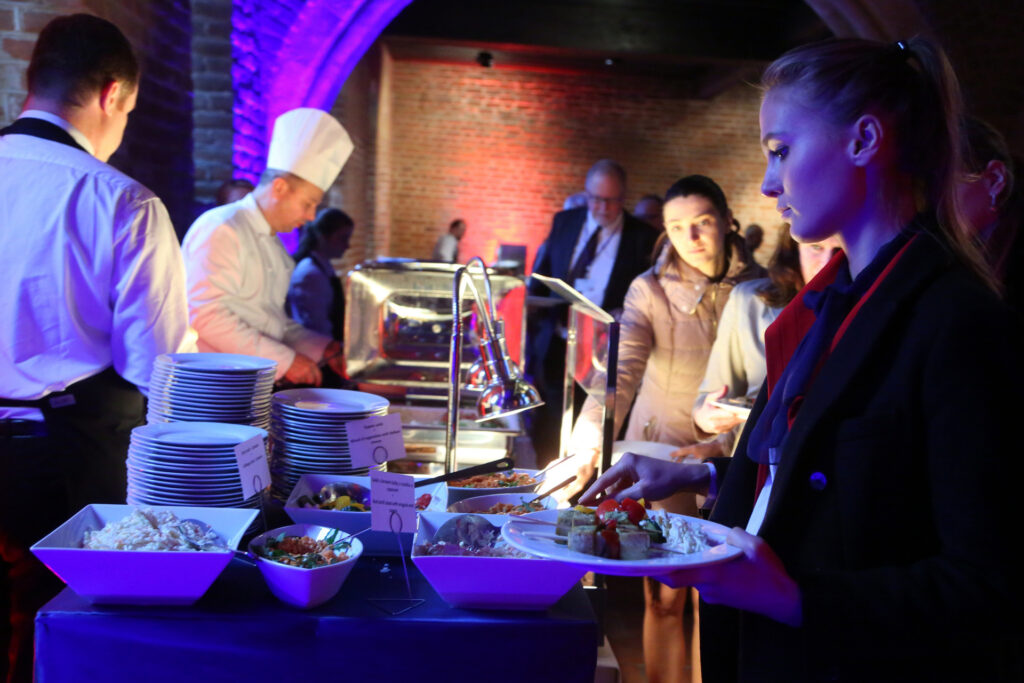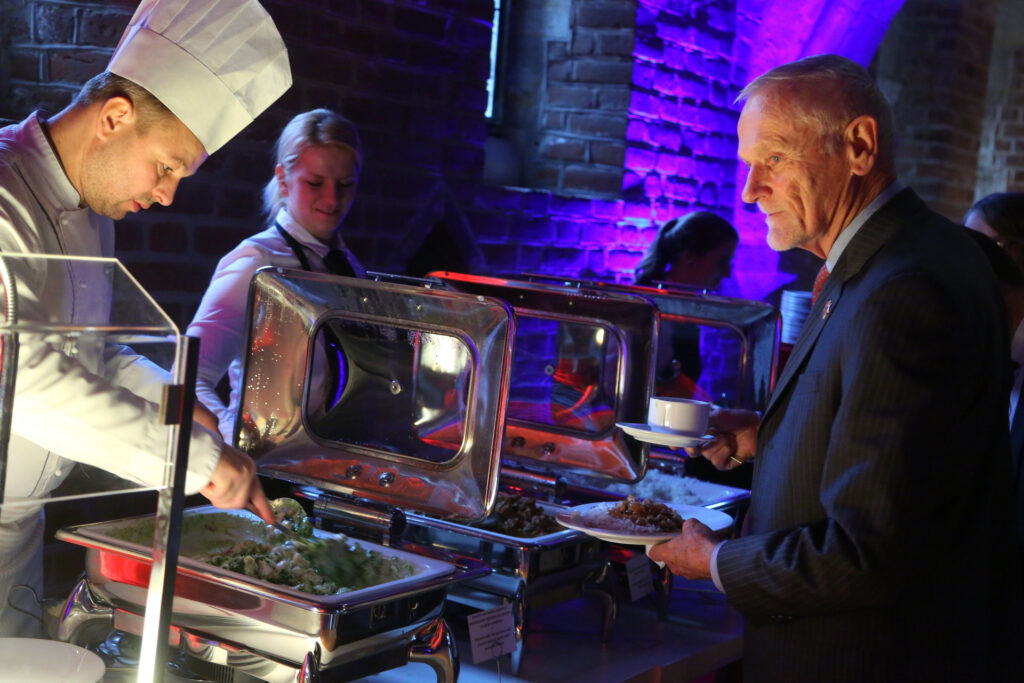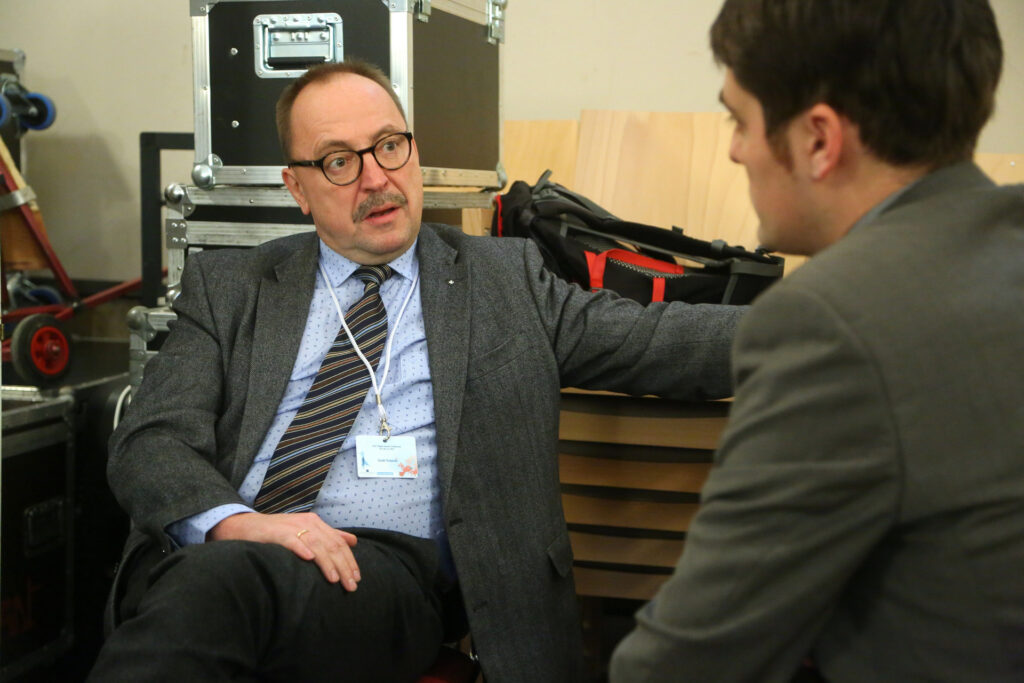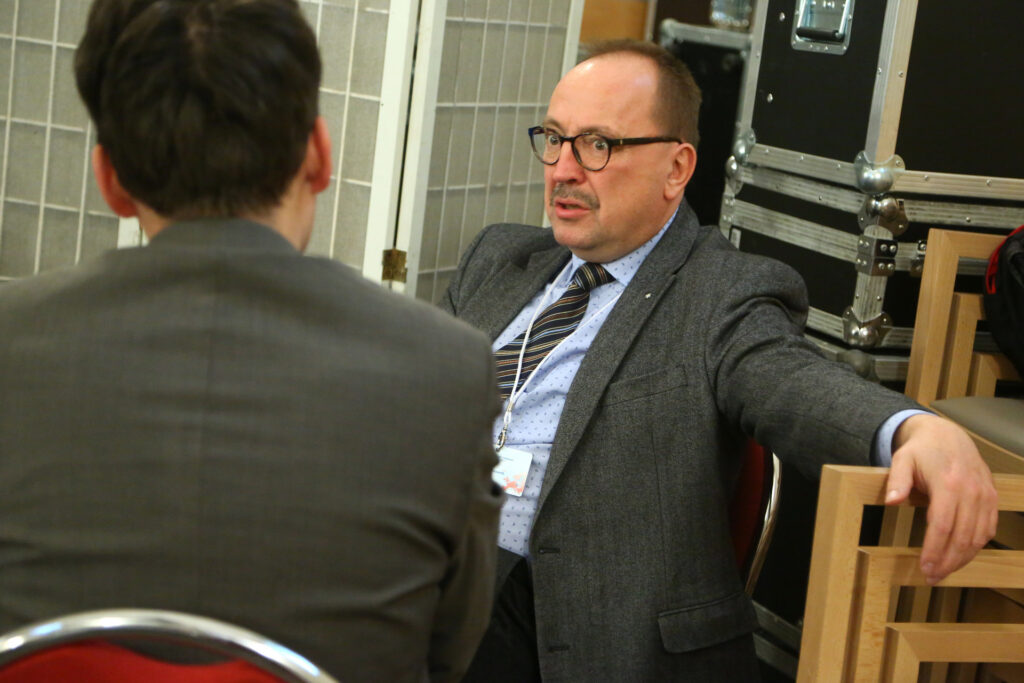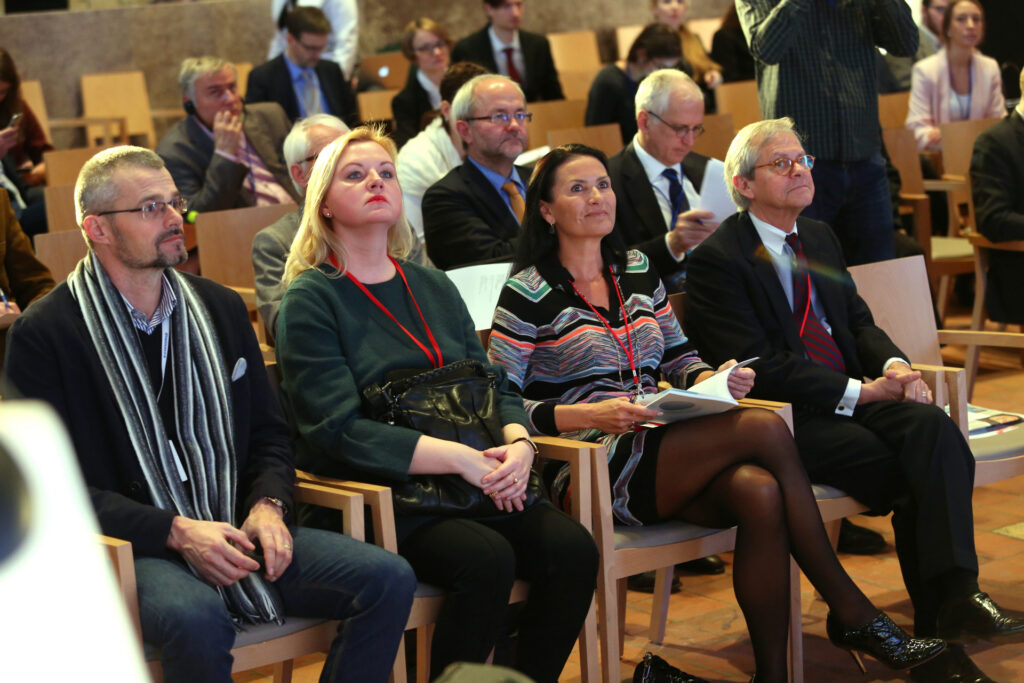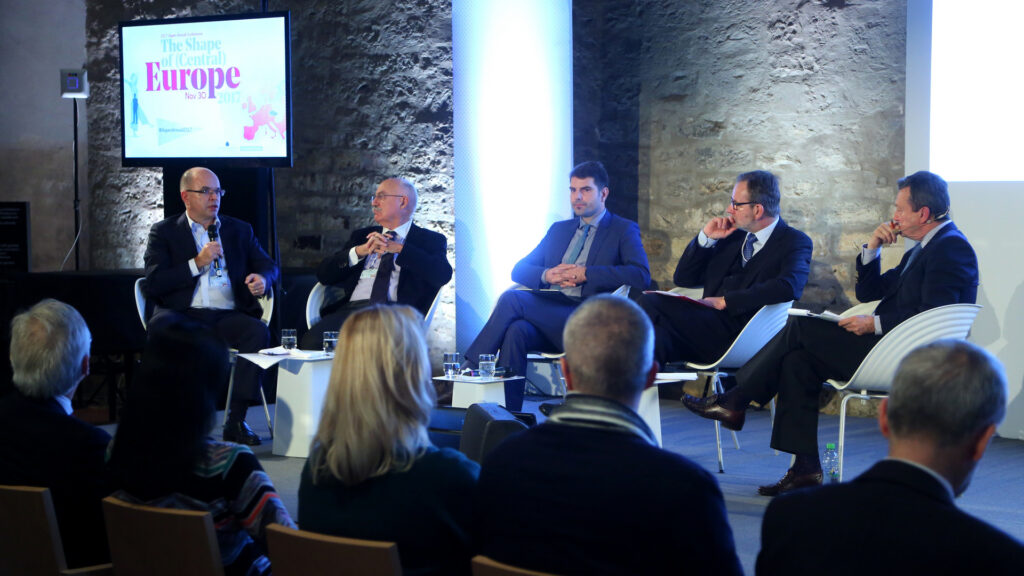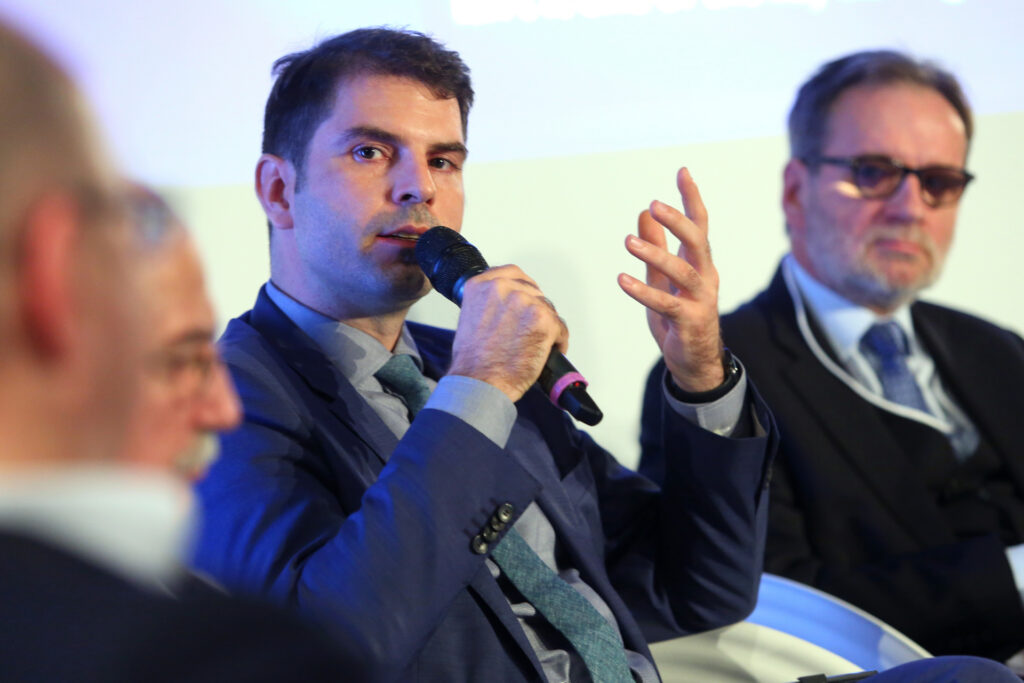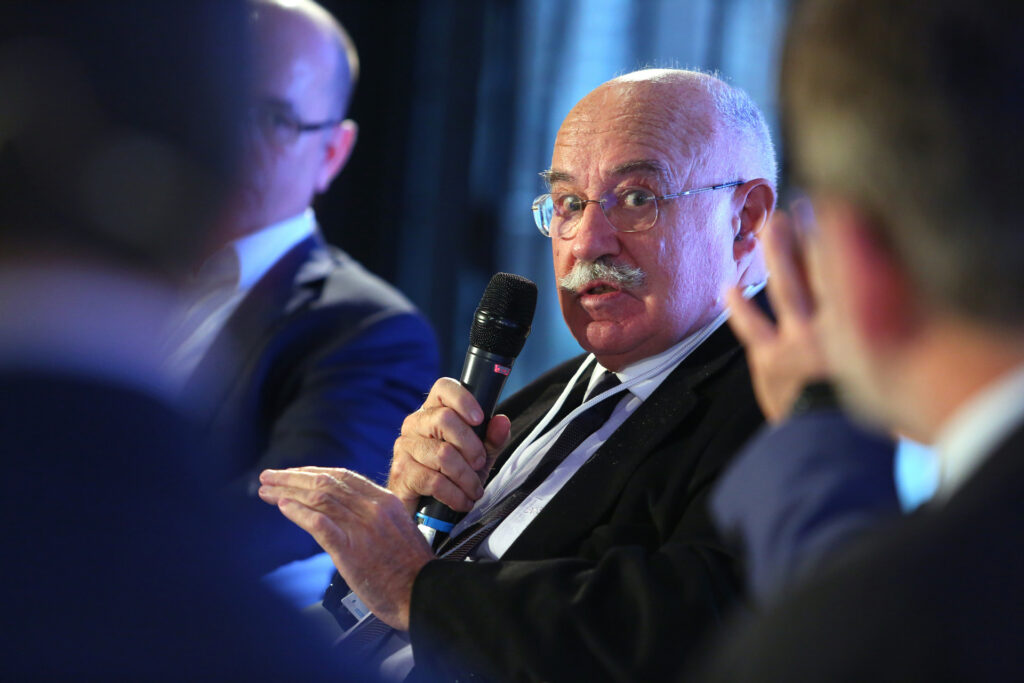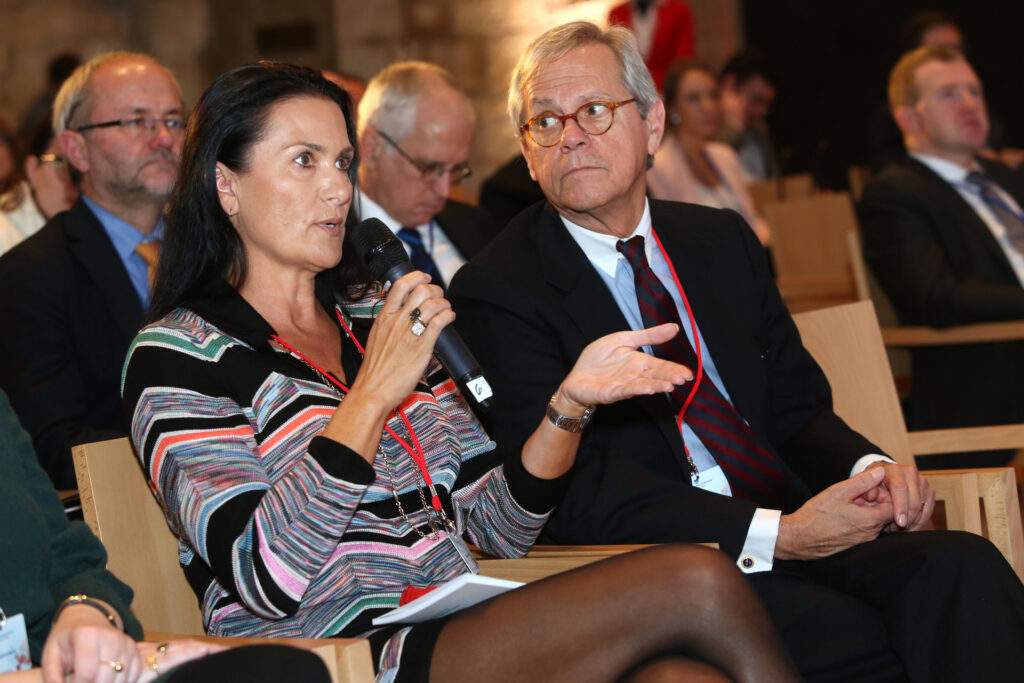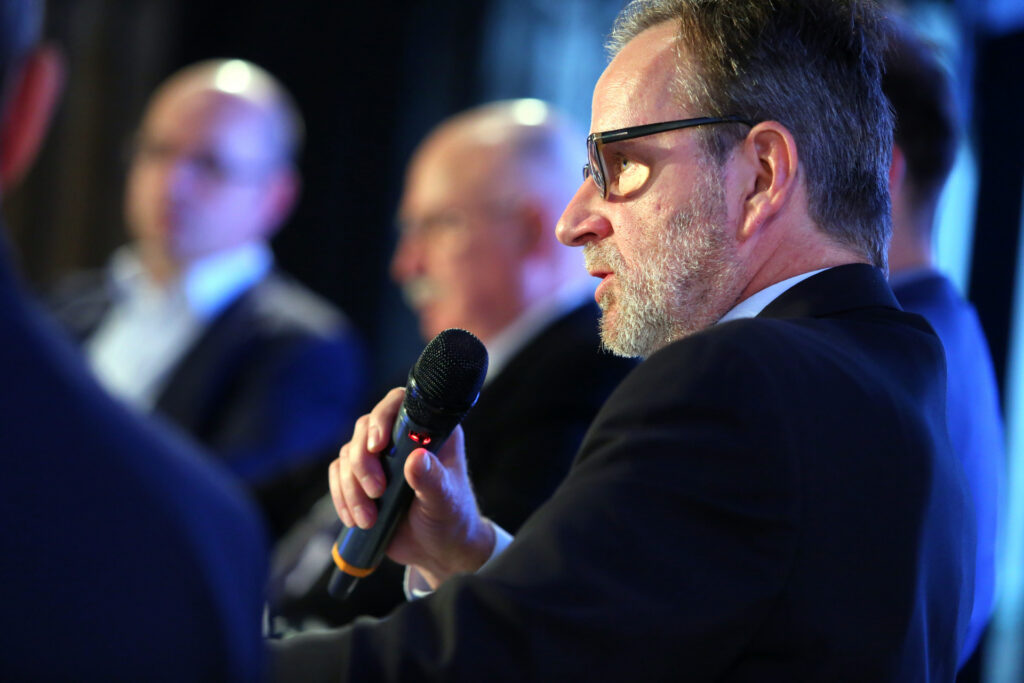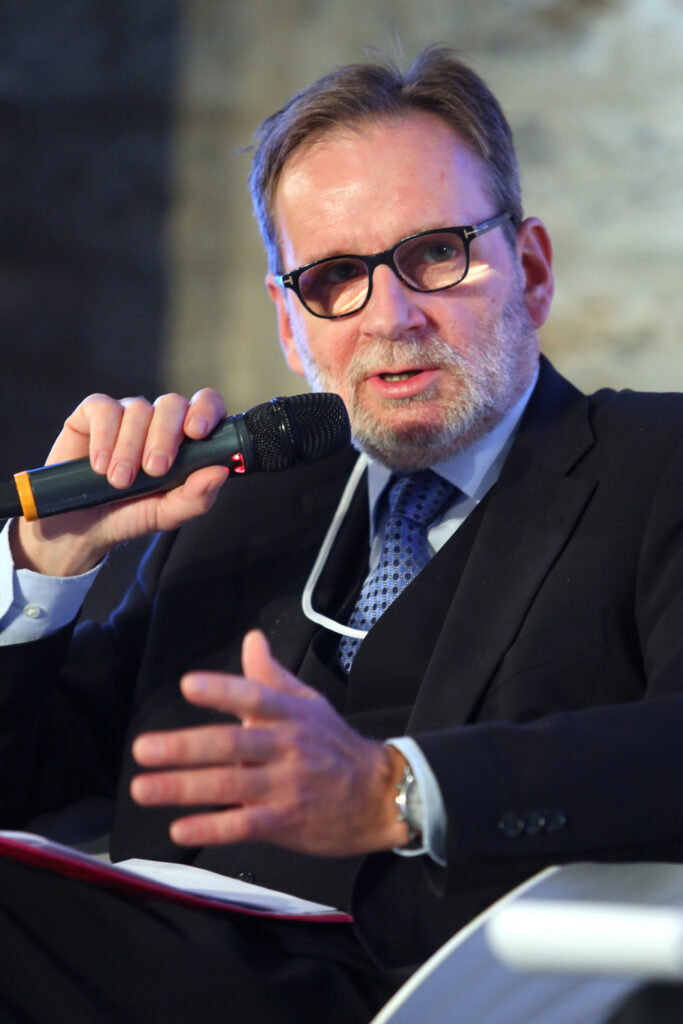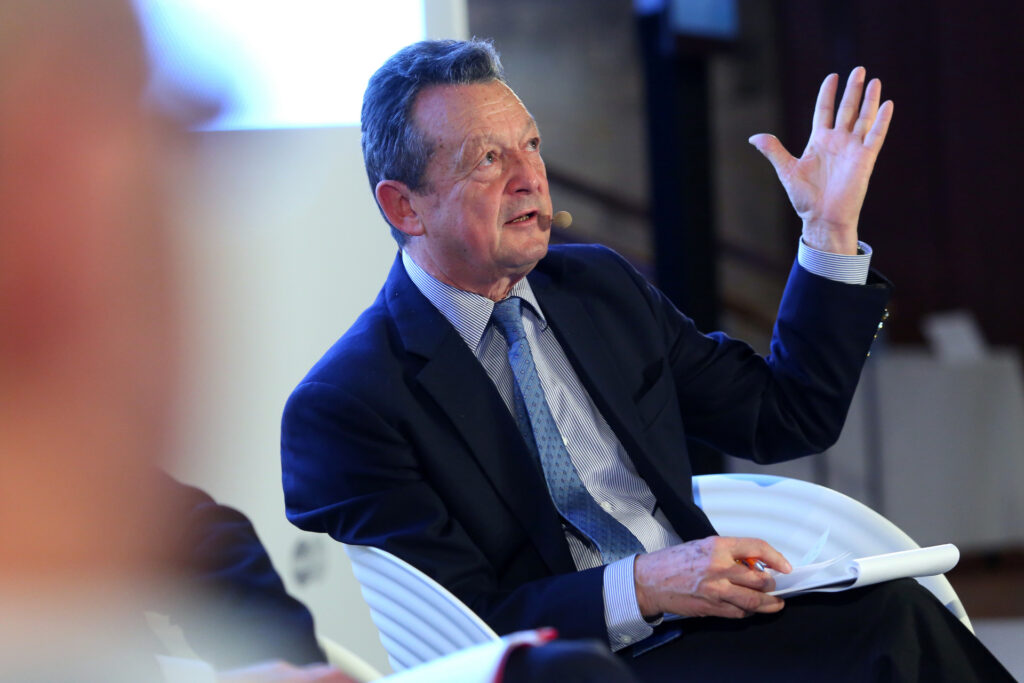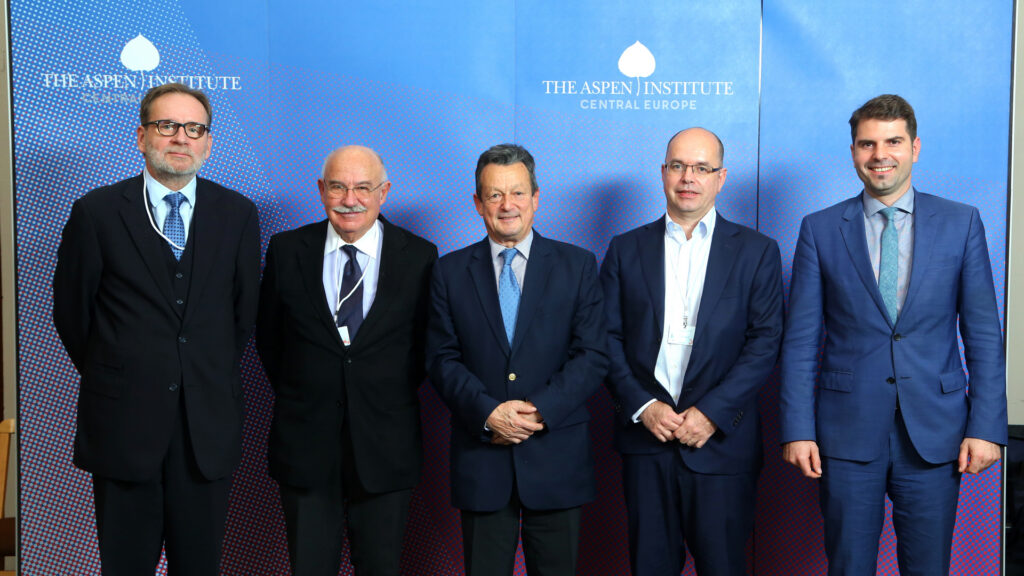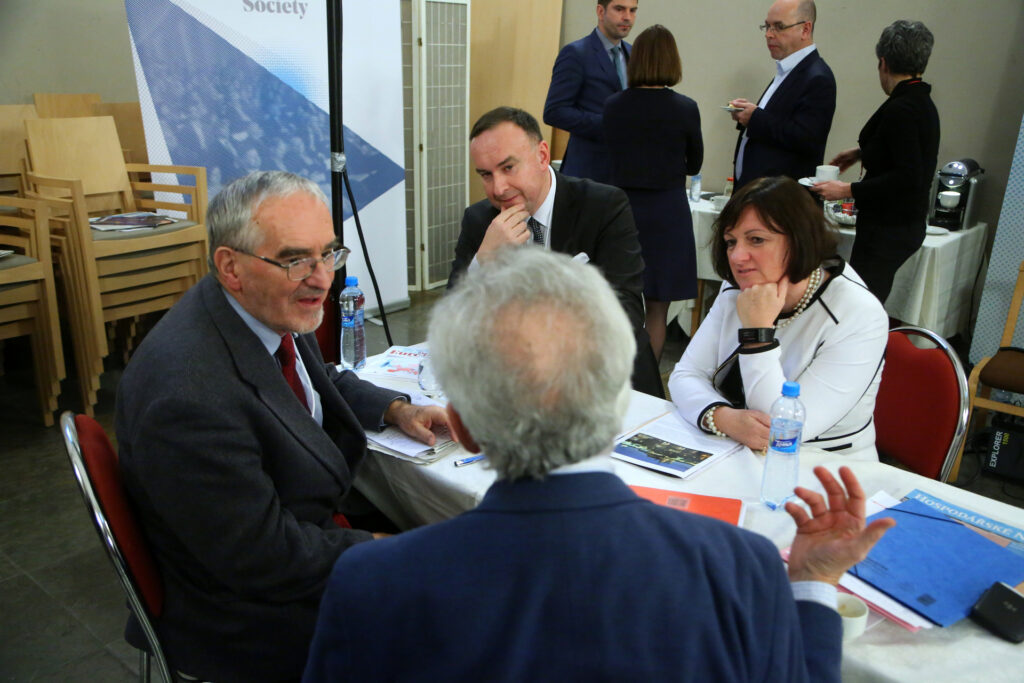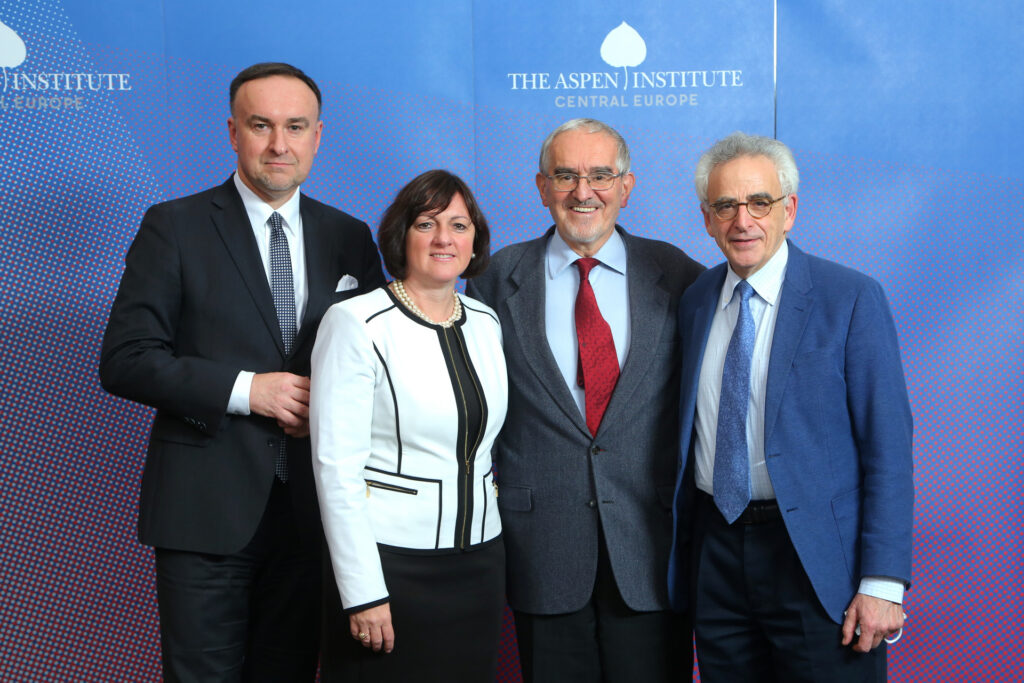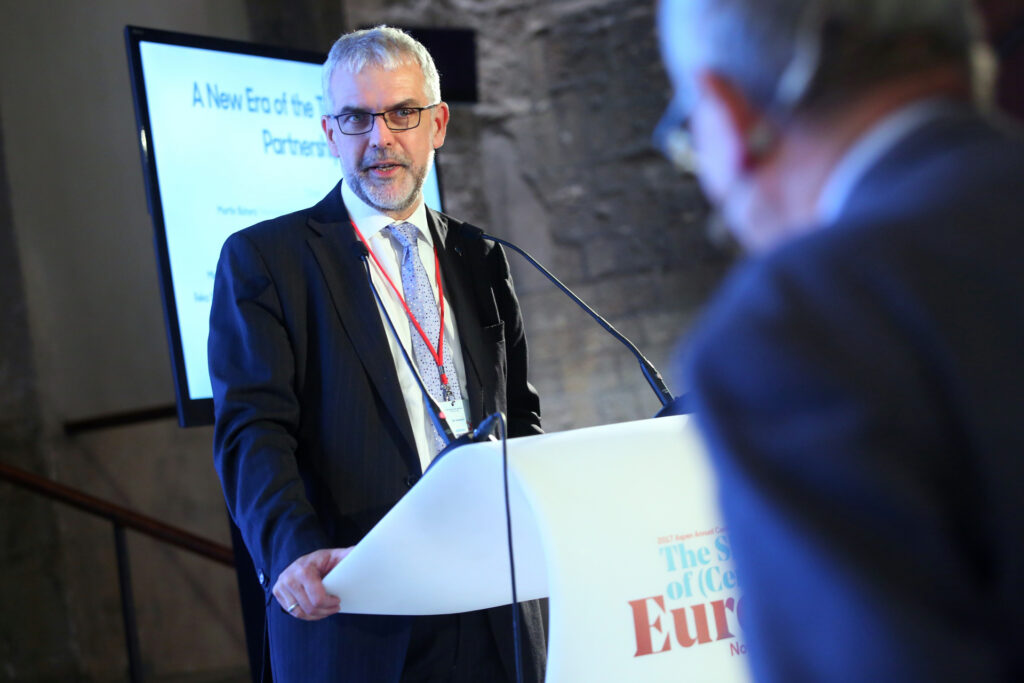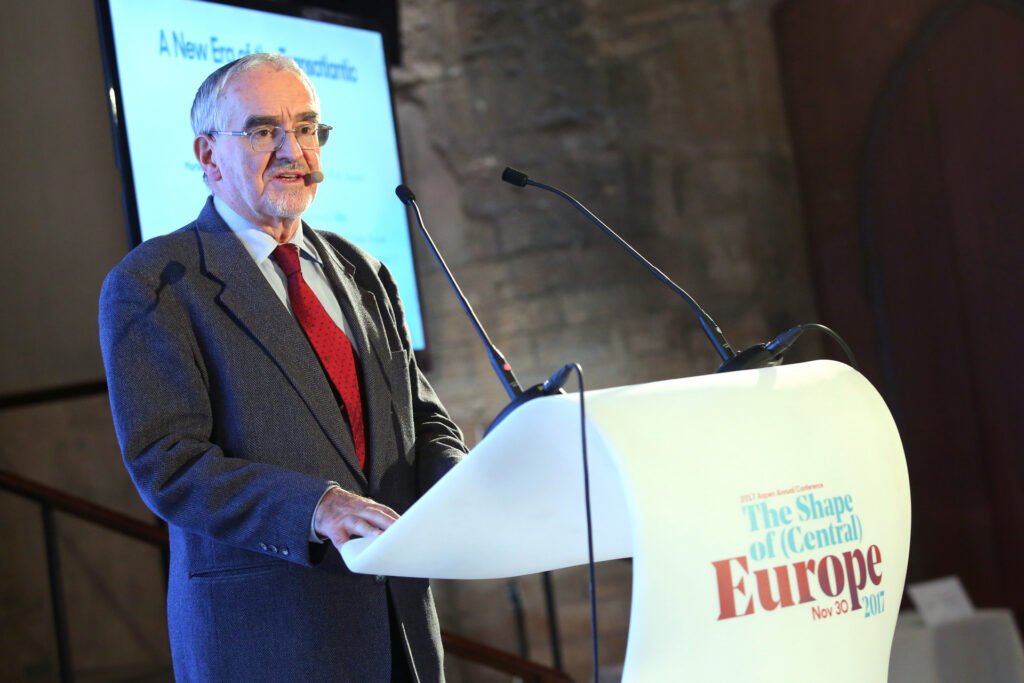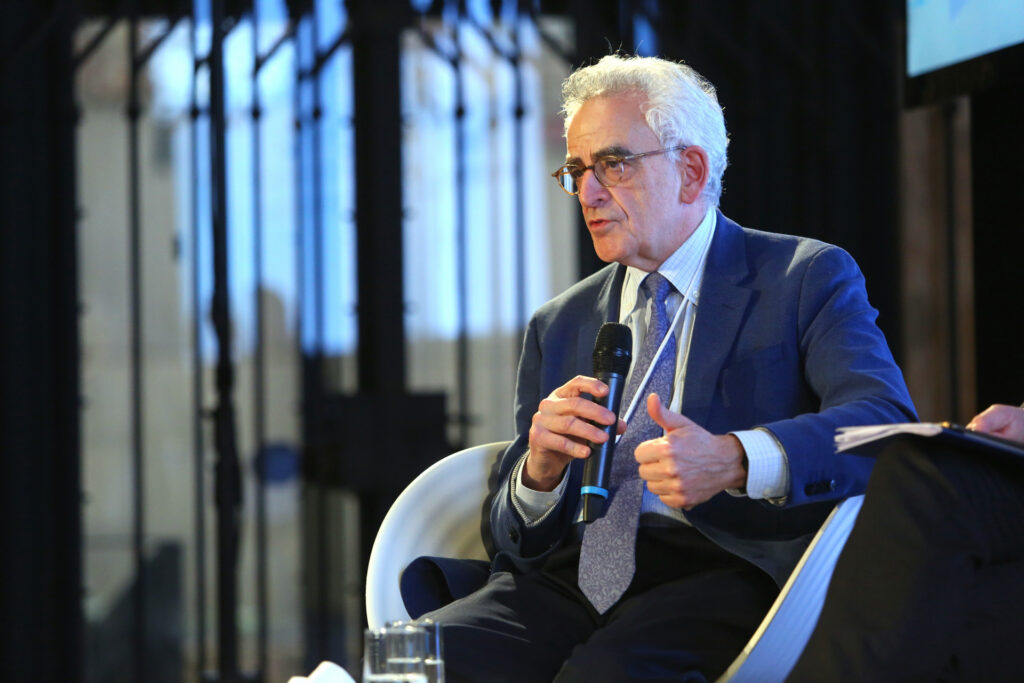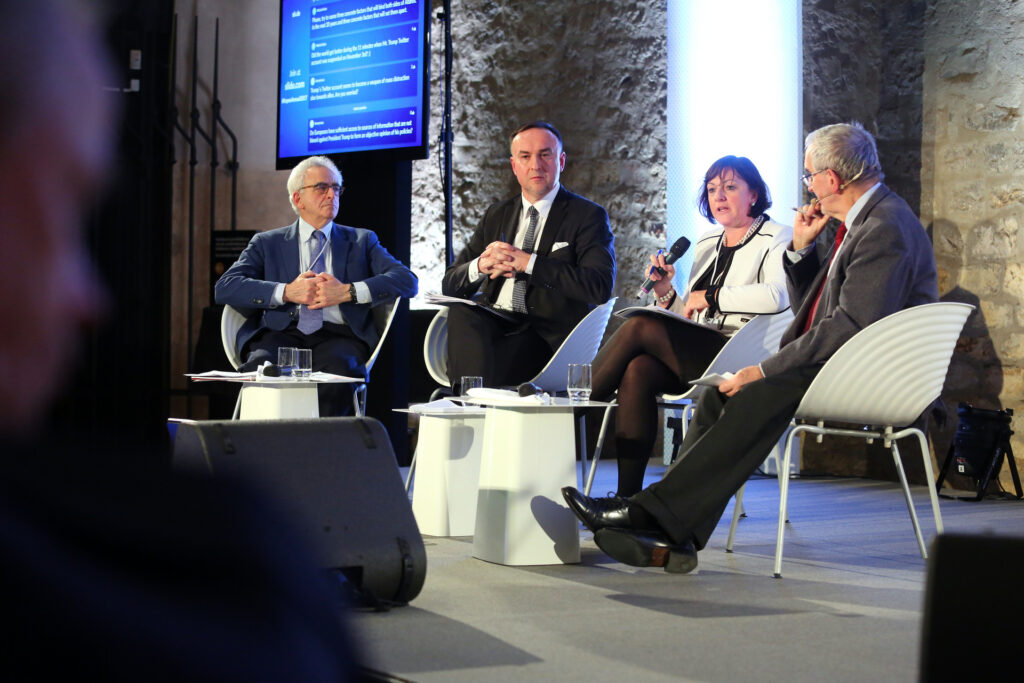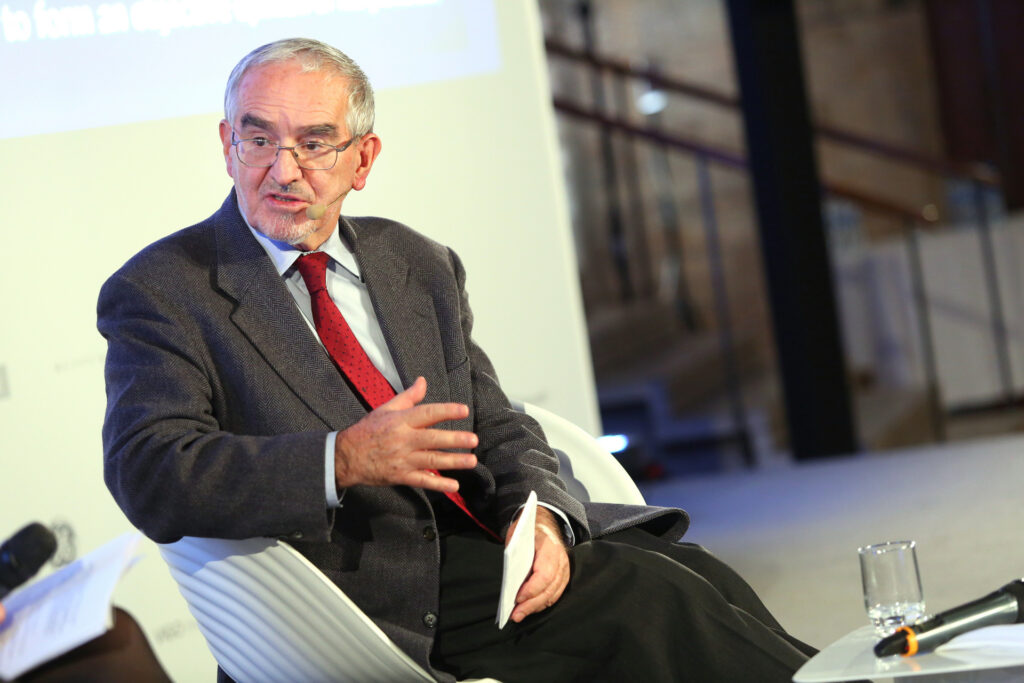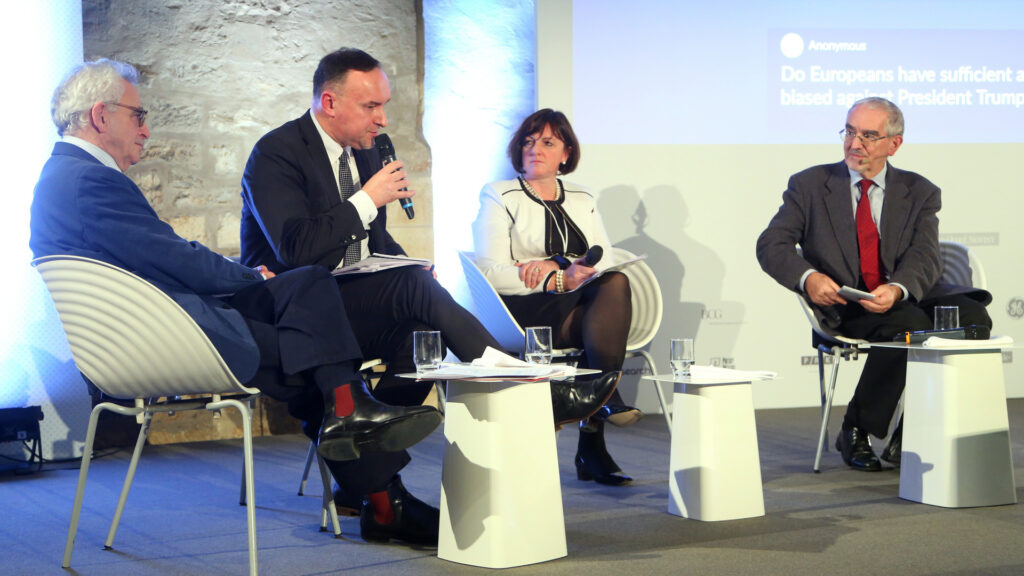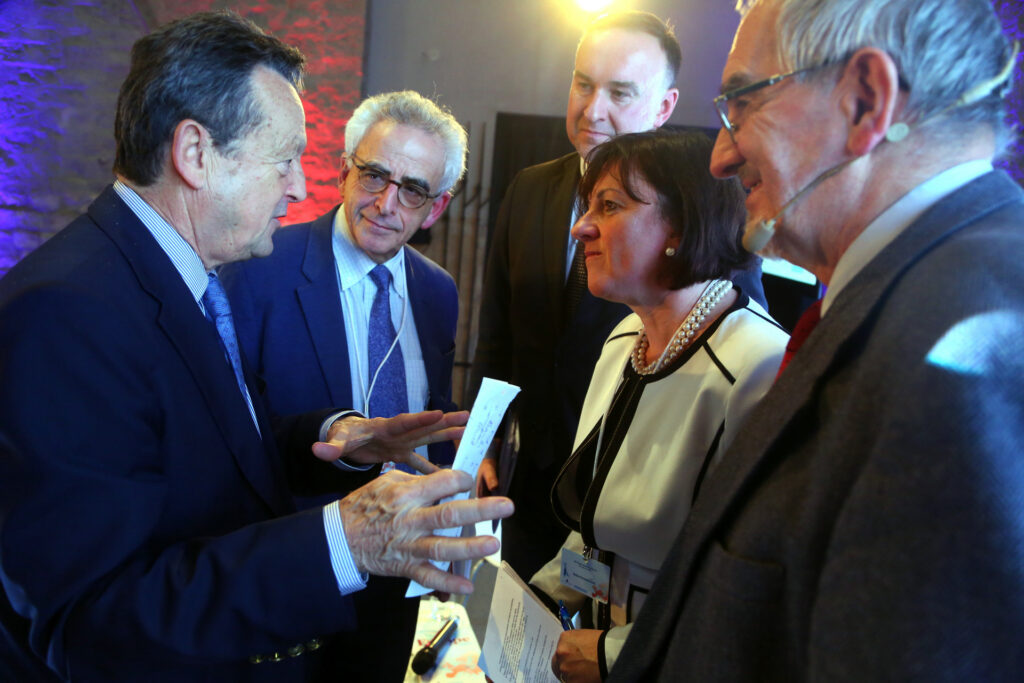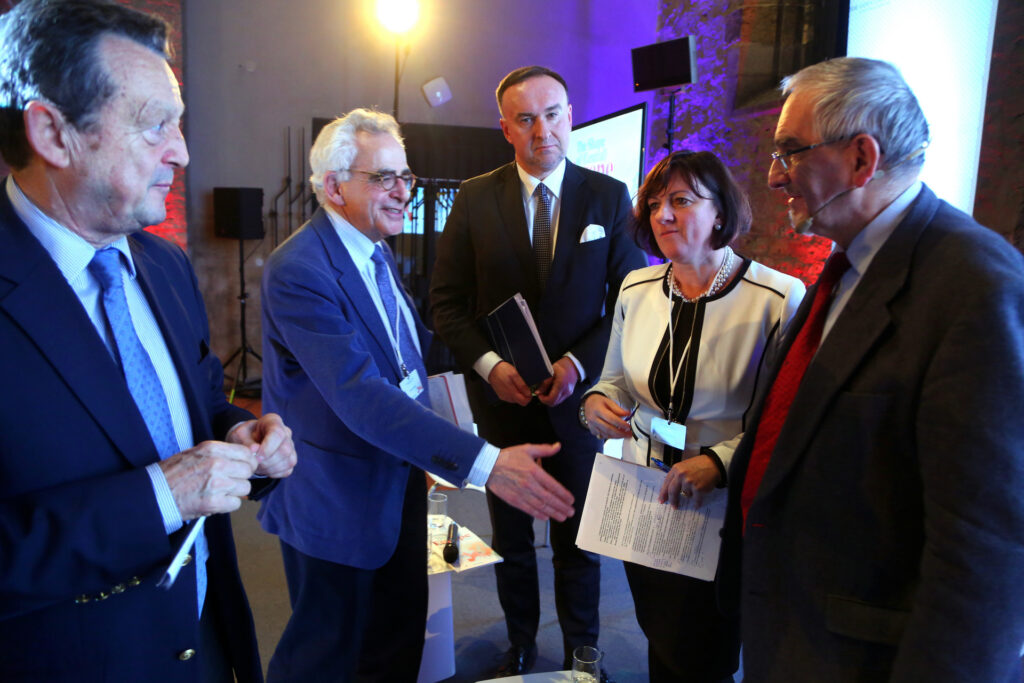The first Annual Conference focusing not only in the Czech Republic took place
on November 30, 2017 in the Monastery of St. Agnes of Bohemia (today National Gallery)
with the title The Shape of (Central) Europe. We organized this conference in cooperation with Hospodářské noviny Daily and with our host, the National Gallery, alike the conference on The Shape of the Czech Republic the day before. Together with our distinguished speakers we aimed to provide a wide overview and analysis of the political, economic and security situation in the region, of the European integration and the future of Transatlantic relationship.
https://twitter.com/AspenInstCE/status/935513303526371328
Summaries
https://twitter.com/Lange_ARD_Prag/status/935811525071302656
Part I: The Shape of Central Europe – How to succeed in Europe and globally
Following presentation of recommendations on competitiveness, education & governance based on Aspen expert reports, the panel debated the competitiveness of the region in the new global developing. The discussion addressed the political situation in the region, European integration, perception of the Visegrad countries, and the lack of will to an open discussion without prejudices Europe wide.
https://twitter.com/AspenInstCE/status/936164743852838912
Having in mind, that positive developments in the future are not effortless, and
https://twitter.com/MartinCZV4EU/status/936163396088627200
no sustainable progress can be expected without transparent good governance and rule of law, the distinguished speakers discussed the political and economic risks and challenges in their own countries. While the politics and good governance have a strong impact on the overall development of a country, it was stated, that also economics should try to have a positive impact on politics; the business should demand in its own interest preservation of rule of law and good governance.
https://twitter.com/MartinCZV4EU/status/936159331841699840
Part II: The Shape of Central Europe – How to increase our resilience?
A discussion based on a presentation that assessed security policy and quality of life aspects was concluded by a lively debate on resilience, social well-being and sustainability. Talking on defense, the speakers emphasized, that we cannot concentrate ourselves only for defense budget increasing.
https://twitter.com/AspenInstCE/status/936185134474244096
https://twitter.com/AspenInstCE/status/936189861446418432
Part III: The Future of Europe – Is the integration project flexible enough?
The panel discussed the position of Visegrad within the EU, the internal relations within Visegrad, and its prospects in the framework of the EU. While there is a certain uneasiness or concern vis a vis two speed Europe, upcoming EU reforms and integration led by the French-German tandem, it is obvious, that an end of this cooperation would be even more critical.
https://twitter.com/AspenInstCE/status/936229001097564161
The panel further discussed the role of Visegrad, which might be often overestimated. The panelists tried to response, if there could be a value added by cooperation in this group, when there are obviously many differences among the four countries, be it the position towards the EU as such, or position in various sectors or policies.
https://twitter.com/ZEK_Praha/status/936233386695450625
The panel addressed the fact, that the enlarged Europe has seen the confirmation of stereotypes, which limit the sense of European identity and the support of the European Union in the Member States.
https://twitter.com/AspenInstCE/status/936238300565819392
Part IV: A New Era of the Transatlantic Partnership?
The conference was concluded by a discussion on the prospects of the Transatlantic Partnership after Brexit and the first year of Trump presidency.
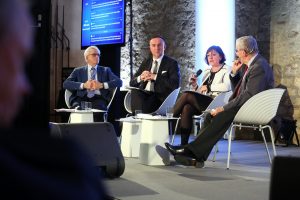
https://twitter.com/AspenInstCE/status/936258729279926275
https://twitter.com/AspenInstCE/status/936263844778868736
This debate was crowned by the Keynote Speech at the Gala Dinner presented by Nicholas Burns, Goodman Family Professor of the Practice of Diplomacy and International Relations, Harvard Kennedy School, and Former Under Secretary of State for Political Affairs.
